










Beginning Jan. 3, the Jewish Federation of Greater Dayton will offer each Jewish student in the Miami Valley from kindergarten through 12th grade a $500 annual subsidy toward Jewish programs locally or anywhere in the world. The subsidy may be used for
religious school, day school, day camp, overnight camp, youth and teen programs and trips, and may be used for multiple programs.
Jewish Federation CEO Cathy Gardner says the new program — Seeds: A Jewish Youth Experience — reflects the high priority the Federation places on encouraging Jewish
families to immerse their children in Jewish learning and social experiences.
"The input we've received is that it's expensive to raise children Jewishly," Gardner says. "And we can serve as the power of the collective in philanthropy to put our money where it's most needed."
Gardner said Seeds is a direct outcome of the Federation's Jewish Dayton Dreams Big visioning project, which identified Jewish youth experiences as a high priority.
Federation Immediate Past President Dr. Heath Gilbert played a key role to make Seeds a reality.
program.
"I am confident it will reduce the number of financial-need reductions we make in tuition, which affects the temple budget."
She notes that although Seeds subsidy is not needbased, it will help families that live paycheck to paycheck. And it will ease the financial juggling for Jewish families with several children.
pen before. For some of those families where the kids are converting too, they haven't necessarily been saving up for Jewish camp. They didn't know it existed. That's where this money will also come in. It will make it a little bit easier for those kids who are newer to try something when it's not going to make or break the parents' budget."
Our complimentary MoneyMind® report helps you understand how you prioritize your financial choices so that you can optimize future decisions.

"The costs of Jewish programming for children add up," he says. "For example, Jewish overnight summer camp for four weeks for one kid is $6,000 to $7,000. The Seeds funding could be used for camp, but also for so many other experiences. And it's not based on need.
"It's available to all Jewish families who would want to tap into it. It's positive, it's simple, a one-page application that takes five minutes to fill out."

Everyone makes financial decisions differently Our complimentary MoneyMind® report helps you understand how you prioritize your financial choices so that you can optimize future decisions. Scan this QR code and get your report:

To receive Seeds subsidy, a student must be raised in a Jewish household and, if between kindergarten and sixth grade, must be signed up for PJ Library; the program sends free books about Judaism to families with Jewish children from birth to 12 years old in the United States and Canada.
Students in grades seven through 12 must be a member of one of the Miami Valley's Jewish youth groups, a student or student teacher with a Miami Valley Jewish religious school, or a participant in a Jewish high school program.
"For any of our families who have kids enrolled in our religious school who aren't doing outside Jewish things, I'm absolutely going to encourage them to use the subsidy for religious school tuition," says Rabbi Tina Sobo, Temple Israel's director of education. The rabbi is among leaders from area Jewish organizations who shaped the Seeds


"It's progressively more expensive when you've got multiple kids," Sobo says. "That $500 won't necessarily make or break one kid being able to go to camp, but when you combine it with need-based scholarships, then it does make a difference."

She tells parents that since they've already paid religious school tuition for the year, they have an automatic $500 to use for camp through Seeds.
"Or use it for a Jewish youth retreat or something that comes up that your kid wants to do that you didn't necessarily budget for. This is where that money is going to be clutch. By making it a little more affordable, ideally it will increase participation for the kids who are already participating to potentially do more. And for kids whose families are on the fence because of the costs, it lowers the bar to engagement to get them in."
Jewish families in the process of joining a Miami Valley Jewish program and families in the process of converting to Judaism are also encouraged to apply for Seeds subsidy.
Since the Covid pandemic first hit, Sobo has seen an increase in individuals and families seeking conversion to Judaism.
"I've had three kids join in our third-to-fifth-grade class after the High Holidays," she says. "I've never had that hap-
Gardner says the Federation is funding Seeds primarily through its annual campaign and with interest income from a bequest it received last year from the estate of the late Thelma Harbor. She estimates about 160 Jewish students will participate in the first year.
The Federation aims to establish an endowed fund to cover Seeds' expenses in the long term.
"Will this increase enrollment in our religious schools? It's a very exciting possibility," Gardner says.
Seeds applications will be open throughout the year.
"Applications we receive by the 15th of each month will be processed by the first of the following month," she says. "Money will go directly to the programs, and we'll notify the families that the money has been sent."
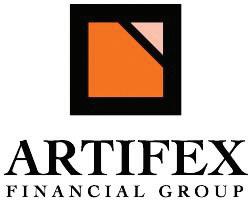
Gardner adds that other Jewish Federations across the United States and Canada have similar subsidies, but she's not aware of any that subsidize this broad a spectrum of Jewish programs for children and teens.
"The statement the Federation makes in ensuring this money exists is that we're investing in our youth," Sobo says. "To have this money to use for identity formation, it's great. I'm proud to see that our Jewish community is making that happen."
Seeds program applications are available beginning Jan. 3 at jewishdayton.org. For more information, contact Alisa Thomas at 937-610-1796.
'We can serve as the power of the collective in philanthropy to put our money where it's most needed.'
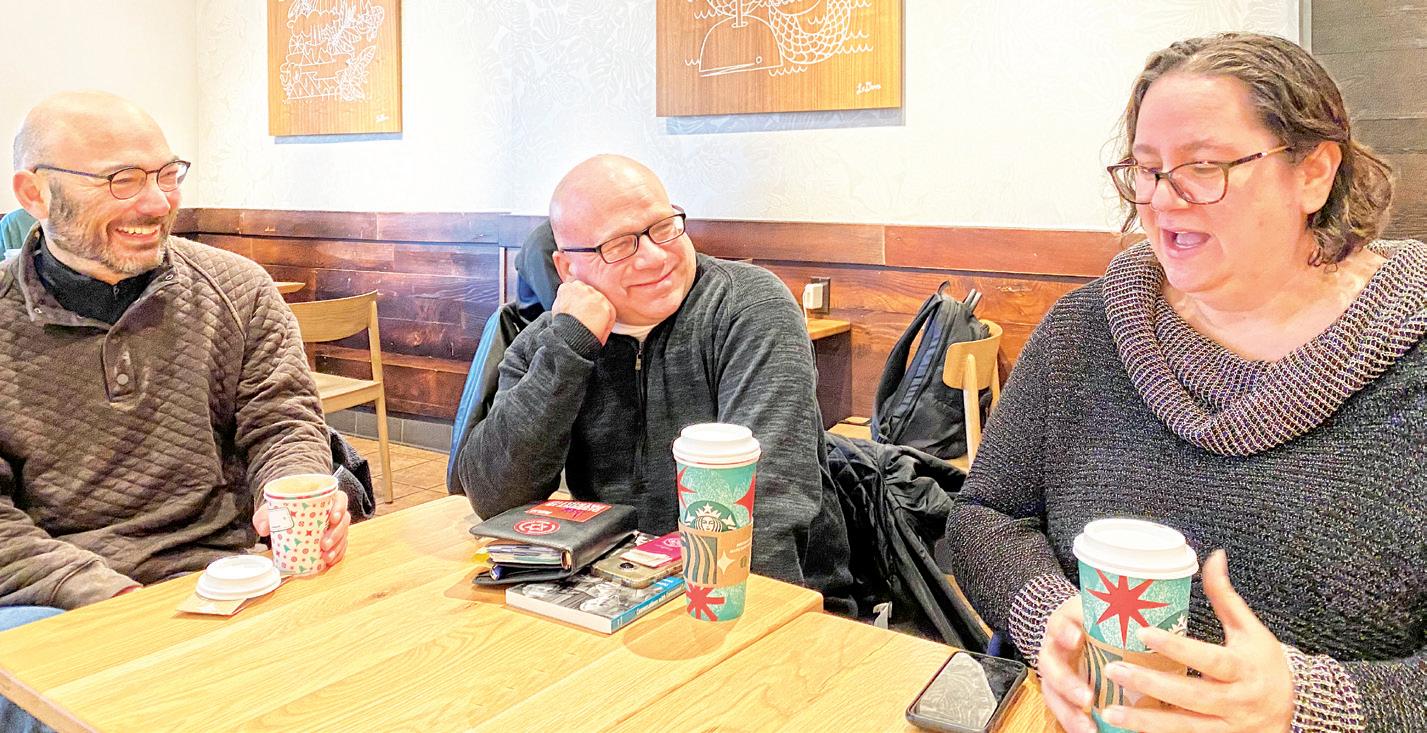
 By Marshall Weiss The Observer
By Marshall Weiss The Observer
With the recent hiring of three Judaic scholars in our region, we introduce you to them here. They are Jenny Caplan, Jewish Foundation of Cincinnati Chair in Judaic Studies at University of Cincinnati; Elliot Ratzman, chair in Jewish studies and visiting assistant professor of Jewish studies at Earlham College in Richmond, Ind.; and Abraham Rubin, assistant professor of religious studies at the University of Dayton.
Ratzman received his Ph.D. from Princeton University and began teaching at Earlham in August 2021. Caplan received her Ph.D. from Syracuse University, and Rubin received his Ph.D. from City University of New York. Caplan and Rubin started their new positions in August 2022.
This interview has been edited for clarity and length.
Jenny, you have major ties to Dayton.
Jenny: Yeah. My dad is from Dayton, my family. And we moved up here (from Florida) the summer before my sophomore year of college, which was ‘98.
Elliot, you're originally from Cincinnati?
Elliot: I went to Finneytown High School, Northern Hills
Synagogue, and on to Ohio University for college. I live in Richmond, but I’m always here. I hang here and in Cincinnati because I was very involved with BBYO and Camp Livingston. I have a lot of Dayton and Cincinnati friends still here.
Abraham: I was born in Chicago. My parents made aliyah when I was 10 months old. I grew up in Haifa, Israel.
I lived there until I was 27.
I was at the Hebrew University of Jerusalem for the past four years.

What are your specialties?


Jenny: I’m trained in religious studies, not Jewish studies. My area of expertise is in American religion. But


Americanists tend to pick some sort of corner of that to focus on and so mine is American Judaism. I mostly do contemporary American Judaism and popular culture. A lot of stuff about film and television.
My first book is coming out in a couple of months on Jewish humor and my second book, that I just got a yearlong fellowship to write, will be on comic books: Jewish comic book characters and the story of how these Jewish comic book creators made characters that weren’t Jewish, and then when they got taken over by non-Jewish writers, the characters got turned into Jewish characters.

Elliot: I think of myself as a social ethicist, working with modern religious materials. Everything I teach, everything I write, is all in the service of political ethics. If I’m known for anything, it’s around questions of race, racial identity, and solidarity in the history of
While I was writing the above article about area Judaic scholars, and the story on Page Two about subsidies for Jewish kids' programs, I was reminded of three price-conscious learning experiences for older adults here in the area. Adults ages 60 and over may audit courses at Wright State University for free. For details, go to wright.edu/raiderconnect/registration/specialprograms. Spring semester begins Jan. 9. The Osher Lifelong Learning Institute at University of Dayton is open to adults ages 50 and over. Its winter program, which begins Jan. 17, offers 80 seminars with no exams, grades, or formal education required. The registration fee of $80 allows you to enroll in as many seminars as you like (scholarships are available). All the information is at go.udayton.edu/ udolli. And Sinclair College for Lifelong Learning offers numerous non-credit courses each semester at $30 per course. Classes begin Jan. 9. Just go to sinclair.edu, click on register, and search for non-credit courses. Get out there and try something new!
the Jewish 20th century. But originally my claim to fame was in contemporary Jewish thought and Jewish philosophy.
I’m working on a book on Jewish anti-racism and who knows when that will be finished. And then I have another project on undercover passing projects, where writers pretend to be members of another group, sometimes Jews pretending to be non-Jews, sometimes wealthy people pretending to be poor people, White people pretending to be Black. That’s another project I’m hoping to dust off soon.
Abraham: I focus on German Jewish literature, culture, and thought. Most recently, I’ve been working on conversion narratives, the autobiographical writings of Central European Jews who converted out of Judaism to Islam and Christianity and their ongoing dialogue with the background that they rejected.
I try to look at how these stories can be understood in the context of modern Jewish history as growing out of the options that Jews faced in the modern era. I have a manuscript that is currently under review.
What classes are you teaching?
Abraham: Intro. to Judaism and Intro. to Religious Studies.

Elliot: Science, Medicine, and


'We have a wonderful convergence of great scholars now here in the region to add to the already existing Jewish studies faculty the region is dotted with.'
Continued from Page Three
Religion, a course on the Bible and Politics, and my signature course on Race and Judaism.
Jenny: Intro. to the Study of Religion, and Jews in American Film.
Do your non-Jewish students come with any prior knowledge of Judaism?
Abraham: No.
Jenny: Mostly with my classes, it’s a subset who are interested in whatever is after the “and” of "Jews and..." They usually know more about the second half of the course title than the Jewish part.
Elliot: Teaching Bible courses to mostly non-Jewish students, they are fascinated and repelled by what they discover in the Hebrew Bible. It seems like most of them have never read the Bible. This semester, all of my students are international students, too.
Elliot, how much of the student body at Earlham is Quaker?
Elliot: Very little. Earlham used to be about 10-15 percent Jewish. But not anymore. Not at all. So I don’t have any Jewish students really. What I have been delightfully unexpectedly pleased with is introducing the students to medieval rabbinic commentaries on the Bible, because Sefaria, the website, has provided a one-stop shop for going down a rabbit hole of how the Jewish tradition interprets this material. And I’m learning a lot, too.
Abraham: The cultural baggage students are bringing from their own faith commitments is actually a great opportunity for them to reexamine their own commitments when they study Intro. to Judaism.
Elliot encouraged me to teach a segment on Jewish-Christian differences and Jewish-Christian relations, which was actually one of the most positive parts of the course.
They get very curious about the Jewish context of the early Christian movement, and they were very surprised about some of the things that they learned. I think there’s still some room for a Part II of this class.
The students were writing about their midterm reflections, they learned about how Jesus is a committed Jew, so their question was, "Why don’t the Jews believe in Jesus then?" They were curious about it because it related to their own faith commitment.
Jenny: My evangelical students are really my favorites. They’re so interested. They frequently come at it with very little self-conscious self-censorship. They’re willing to ask questions that most students will be like, "Oh, I don’t want to ask, maybe it’ll be offensive, maybe everybody already knows that." I love those students.
Abraham: To go back to the issue of the students’ backgrounds and what they know or don’t from their own religious traditions, they’re surprised to learn about some of the very anti-Jewish statements in the New Testament, like Jesus calling the Jews "children of (your father) the devil." Or again, the "synagogue of Satan." Things like that. They’re shocked to learn that those things exist in their scriptures.
So you have students with zero frame of reference for what you teach?
Jenny: That’s most of the students these days.
Elliot: Well, yeah. Some of my more activist students were very angry at me last spring for talking about how White American Jews are very ambivalent about their whiteness. And when I announced that I and other people I know sometimes check the “other” racial box, they were aghast.
They couldn’t understand the complicated politics of whiteness because they see it all through the lens of the Israel-
Palestine conflict: Jews are obviously White because they’re dominating Palestinians.
And so they were not very generous in understanding the history of Jewish ambivalence about whiteness and gestures of solidarity with African Americans.
Were some eventually able to process that?
Elliot: Some. The head of the Palestinian students took my class, Race and Judaism. He’s learning a lot about Jewish internal handwringing around impressions of power and race. So that’s important.
What projects would you like to pursue that you haven’t yet?
Jenny: I want to get back to contextualizing American Judaism within a larger religious context.
Abraham: In terms of experiential learning, my dream is to get my Intro. to Judaism students to Beth Abraham for Purim. I think that a lot of the things that worked for me five or 10 years ago in the classroom need to be rethought and reworked to connect students to the material. Covid and the changes to students’ learning habits have really required me to adapt.
Elliot: I’ve gotten much more involved with the organized pacifist community in the last few years. So I’m hoping to do some actual archival work on some of the American Jewish history of pacifism.
Mark Verman has served as professor of religion and Larry and Leonore Zusman Chair of Judaic Studies at Wright State University since 1999. With a Ph.D. from Harvard University, he specializes in biblical and post-biblical Jewish literature, comparative mysticism, and Holocaust and film studies.

He is the author of The Circle of Contemplation: Medieval Jewish Mystical Sources and The History and Varieties of Jewish Meditation.
I also have a project on Martin Luther King Jr.'s intellectual influences, which was a class, which I’m hoping to turn into something like a book.
What else would you like to share?
Elliot: We have a wonderful convergence of great scholars now here in the region to add to the already existing Jewish studies faculty the region is dotted with. I’m really glad to have my colleagues here.
Abraham: I’ve only been here three months now, but it’s been such an enriching experience to be teaching Jewish studies at a Catholic, Marianist institution. I really have this comparative cross-cultural experience here that I don’t think I would have had anywhere else.
Elliot: But we’re also not here just to be ambassadors for the Jewish world to the non-Jews. We’re here doing serious pedagogy and we teach serious stuff.
We’re not here to promote Judaism. And a lot of parents and students think, "I’m going to take a Judaism class to get what I didn’t get in terrible Sunday schools." And that’s just not part of the bag.
Jenny: Or "I want my kid to take it for the Judaism so that they stay Jewish."
Elliot: "Marry a Jewish person."
Jenny: They are much more likely to come out of my class slightly disenchanted.
Elliot: I’ve met with parents of prospective students who are wanting to see if Earlham will offer a sort of wrap-around Jewish life experience for them.
In some ways, I’m also the Hillel director. We have five students who reside in the Jewish Cultural Center, which was dedicated by Elie Wiesel in the late ‘80s.
There are theme houses at Earlham. But there’s no Hillel building. It doesn’t make any sense. Small liberal arts schools do not have the same resources as a UC or even a UD.
THE DAYTON
Editor and Publisher
Marshall Weiss mweiss@jfgd.net 937-610-1555
Contributors
Marc Katz, Rabbi Shmuel Klatzkin Candace R. Kwiatek
Advertising Sales Executive Patty Caruso, plhc69@gmail.com
Administrative Assistant Samantha Daniel, sdaniel@jfgd.net 937-610-1555
Billing
Sheila Myers, smyers@jfgd.net 937-610-1555
Rachel Haug Gilbert, Pamela Schwartz Observer Advisor Martin Gottlieb
Published by the Jewish Federation of Greater Dayton


Mary Rita Weissman President
Dan Sweeny President Elect
Marni Flagel Secretary Neil Friedman Treasurer Ben Mazer VP Personnel
Teddy Goldenberg VP Resource Dev. Dr. Heath Gilbert Immediate Past Pres. Cathy Gardner CEO
The Dayton Jewish Observer, Vol. 27, No. 5. The Dayton Jewish Observer is published monthly by the Jewish Federation of Greater Dayton, a nonprofit corporation, 525 Versailles Dr., Dayton, OH 45459.
Views expressed by columnists, in readers’ letters, and in opinion pieces do not necessarily reflect the opinion of staff or layleaders of The Dayton Jewish Observer or the Jewish Federation of Greater Dayton. Acceptance of advertising neither endorses advertisers nor guarantees kashrut.

To support, strengthen and champion the Dayton Jewish community by providing a forum and resource for Jewish community interests.
• To encourage affiliation, involvement and communication.
• To provide announcements, news, opinions and analysis of local, national and international activities and issues affecting Jews and the Jewish community.

• To build community across institutional, organizational and denominational lines.
• To advance causes important to the strength of our Jewish community including support of Federation agencies, its annual campaign, synagogue affiliation, Jewish education and participation in Jewish and general community affairs.
• To provide an historic record of Dayton Jewish life.
Verman teaches the Bible, Koran, World Religions, and various aspects of Jewish thought. He facilitates the Annual Ryterband Symposium in Judaic Studies, co-sponsored by the University of Dayton, United Theological Seminary, and Wright State.
So talking to prospective Jewish parents, I said, "Look, your student’s going to come here and have a really enriching experience with international students and an incredibly engaged intellectual experience. But there’s not a Hillel house with Shabbat dinners every Friday like other schools." There’s Shabbats every few weeks for the whole community. We have a lot of non-Jews who come to the Shabbats.
— Marshall Weiss
'The cultural baggage students are bringing from their own faith commitments is actually a great opportunity for them to reexamine their own commitments when they study Intro. to Judaism.'
American Jewish Committee: ‘This type of incendiary language makes Jews less safe’
By Marshall Weiss The Observer
Ten minutes into his Sunday, Nov. 27 morning sermon at Anchor Baptist Church in Riverside, the congregation’s pastor, Mike Elliott, told churchgoers, “The Jews hate us. You do know that, right? They hate Christians.”
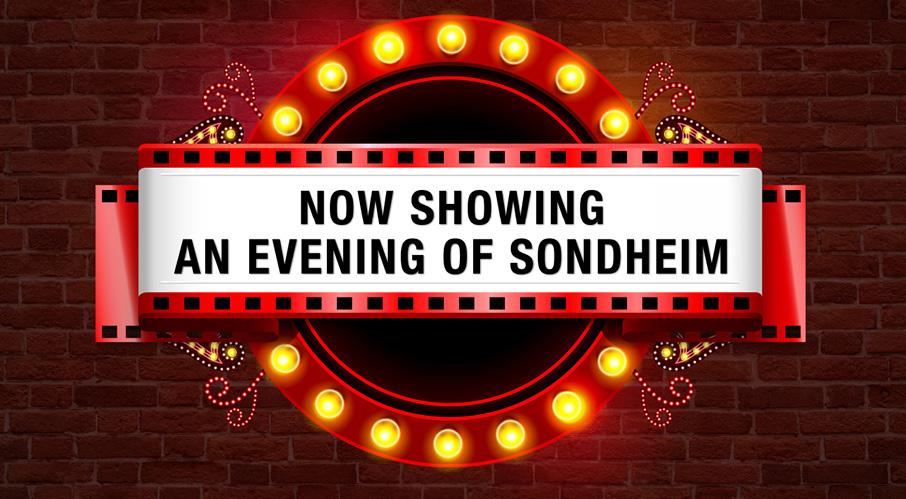
Pointing at his congregation, he continued, “You are against everything they have, since they think we’re against their God when we’re actually for it.”
Anchor Baptist Church, which Elliott founded in 2005, distributes videos of its sermons via YouTube.
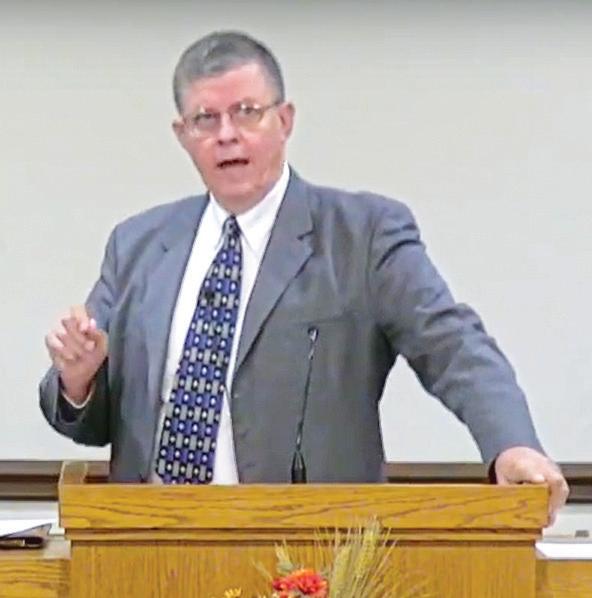
“Since they don’t believe that (Jesus Christ is their messiah), they think we are at odds with them.”
Elliott made these pronouncements after telling his congregation, “I’m all for the Jew, man,” and that “If you look over at Israel, you see everybody who goes against that nation usually get tore up.”
Citing God’s blessing to the Jewish people in Genesis 12:3, Elliott added, “If you want to end the wars on this planet, what you need to do is turn all your armies over to Israel, let Israel have total control of the whole thing, and there will be peace on earth.”
To conclude that portion of his sermon, he said, “Israel is what it is today because the United States got involved in helping them get there, but they just hate us for some reason.”
The Observer asked Elliott if he stood by his words from the Nov. 27 sermon. He said he was “for the Jewish nation 100 percent,” but insisted that the Christian Bible says that the Jews hate Christians.
“Yes, you get it in the New Testament,” he said. When asked how he could square what he described as his love of the Jewish nation with his statement from the pulpit that the Jews hate Christians, El-
liott said, “Because religion. Religion. It has to do with religion. It has nothing to do with a person. It has to do with religion. Religion were at odds because of Jesus Christ. There’s an issue in what we believe as far as religion goes. That is going to be where the rubber meets the road, or the roughness is. I believe in Jesus Christ as your messiah, but I believe he’s mine too. He’s my savior. If you don’t believe that, there’s going to be an issue there between what you believe as a religion and what I believe. The rub would come right there.”
“Equally important, it is dangerous, particularly at this moment of resurgent antisemitism, to generalize or stereotype Jews. This type of incendiary language makes Jews less safe and feeds preexisting bias that can lead to violence.”
Kirschner said the pastor’s contradictory views about Jews are in line with a strain of antisemitism called “philosemitism.”
AJC defines philosemitism as a disproportionate focus on Jews, which, even if positive, “may hint at underlying prejudice, if not nefarious intent.”
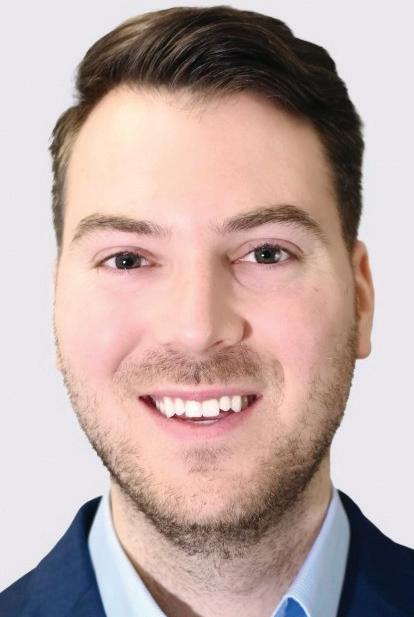
“In his belief that our faiths are at war with one another, this individual is standing alone in the wilderness,” Kirschner said of the pastor. “The reality is that our faiths have decades of friendship amid their challenges, but we’re working together for a more just and more unified community and society.”
The pastor's contradictory views about Jews are in line with a strain of antisemitism called 'philosemitism.'
In his interview with The Observer, the pastor said he didn’t know why his statement, “the Jews hate Christians” could be understood as antisemitic.
Justin Kirschner, regional director of the American Jewish Committee’s Cincinnati office, said the pastor’s language from the pulpit on Nov. 27 was “incendiary.”
“While we appreciate the pastor’s affection for the Jewish people and support for the State of Israel, we wish he would be more careful and not say outrageous things like ‘Jews hate Christians,’” Kirschner told The Observer
AJC is a global Jewish advocacy organization with a long history of building interreligious relations.

“It is not true that ‘Jews hate Christians.’ The overwhelming majority of the Jewish people respect Christians as fellow members of an Abrahamic religion and, more importantly, as fellow human beings created in the image of God,” Kirschner said.
“I just don’t understand that. That’s insane,” Elliott said. “I do not hate Jews. I love the Jewish nation.”
Kirschner said he hoped the pastor might be able to lean into “the challenges of his words” and find a way to build bridges with the Jewish community.
“I hope this is a learning opportunity where we can further deepen our relationship that seems to have a sense of misunderstanding at its heart, at least in this situation.”
Under the doctrine heading of Anchor Baptist Church’s What We Believe page at its website, it states, “We hold the Biblical position along with the Reformers that the Roman Catholic Church is the great whore of Revelation 17, and are against the falsehoods taught in the major seminaries across the country: the lies of higher and lower criticism of the word of God.”
Elliott told The Observer he was born and raised a Roman Catholic.



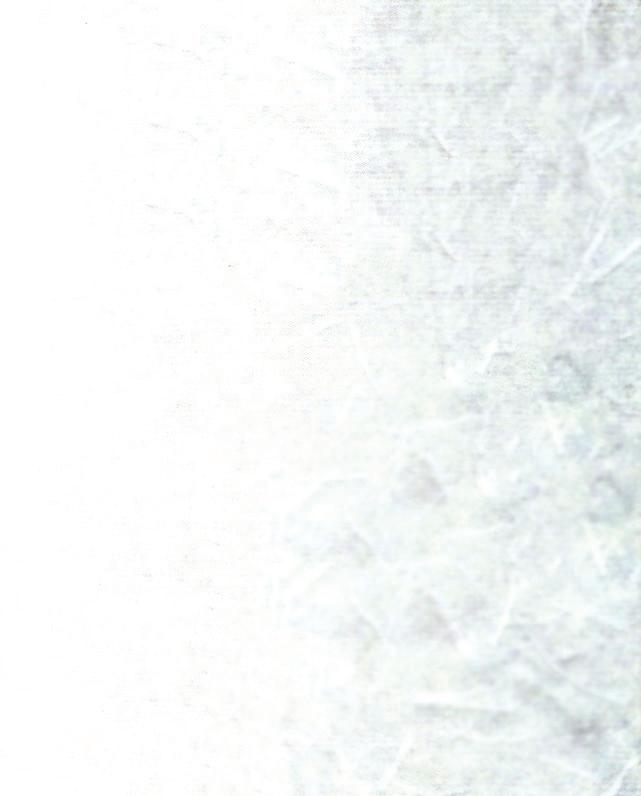
Dayton Hadassah will host a virtual talk with David Yogev from Israel at 1 p.m., Sunday, Jan. 22. Yogev was born in 1947 in a detention camp in Cyprus for Jewish refugees. His parents were Holocaust survivors. On their voyage to Britishcontrolled Palestine, they were turned away and sent to Cyprus; the British put a limit on the number of Jews allowed into Palestine, which led to a struggle between British naval ships and refugee ships. Register at hadassahdayton@ gmail.com or 937-275-0227.


Chabad of Greater Dayton will present its Kosher Deli Night at 7 p.m., Saturday, Jan. 7. The menu includes deli sandwiches, knishes, matzah ball soup, babka, and rugelach. The cost is $30. Chabad is located at 2001 Far Hills Ave., Oakwood. RSVP to chabaddayton.com.
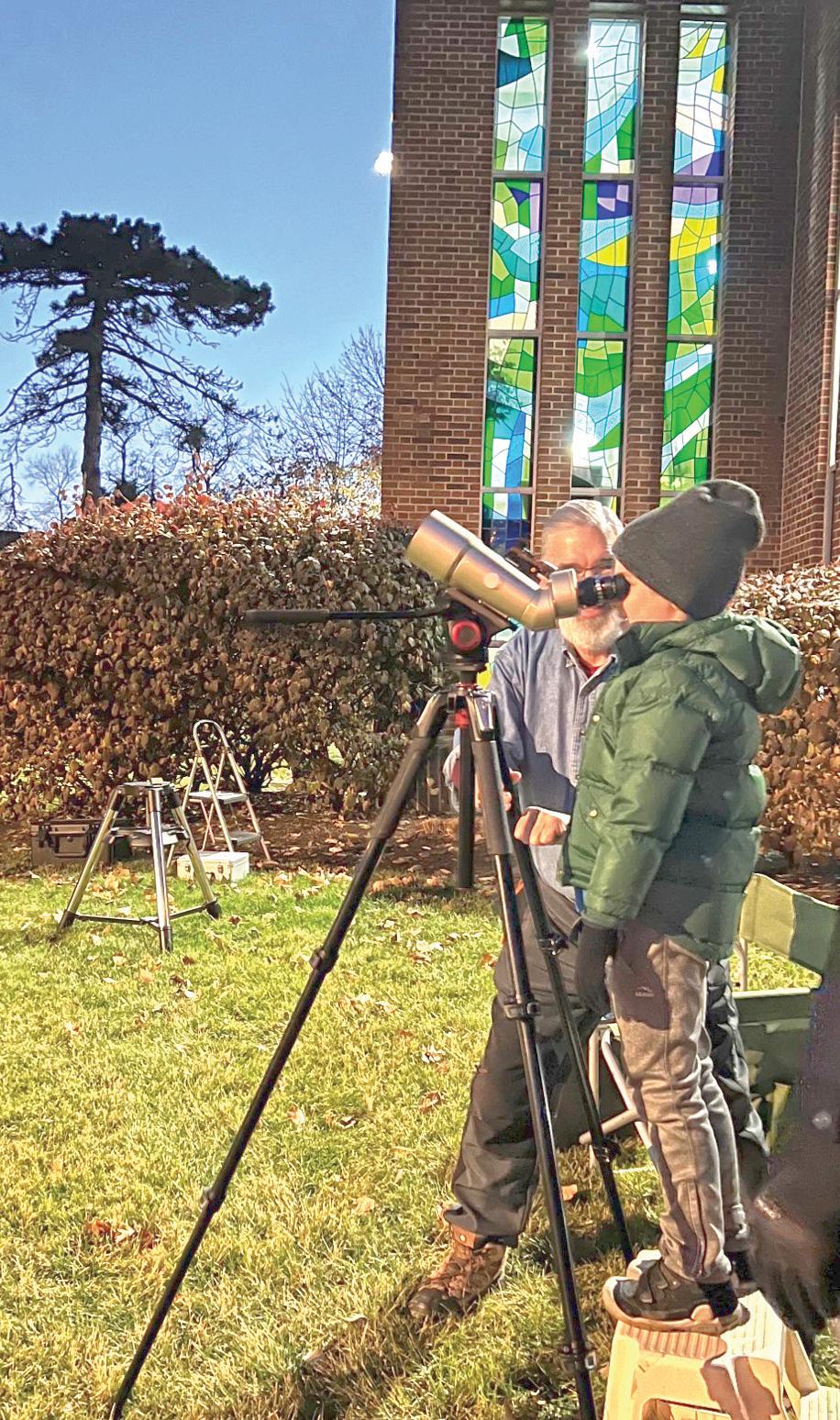



Dayton Jewish Observer Editor and Publisher Marshall Weiss will present the public lecture John H. Patterson, NCR, Oakwood, and the Jewish Community at 5 p.m., Thursday, Jan. 26 in Sears Recital Hall, Jesse Philips Humanities Center, University of Dayton. Weiss is also project director of Miami Valley Jewish Genealogy & History and the author of two books about Dayton Jewish history. The public is welcome; visitor parking is available at Lot C.
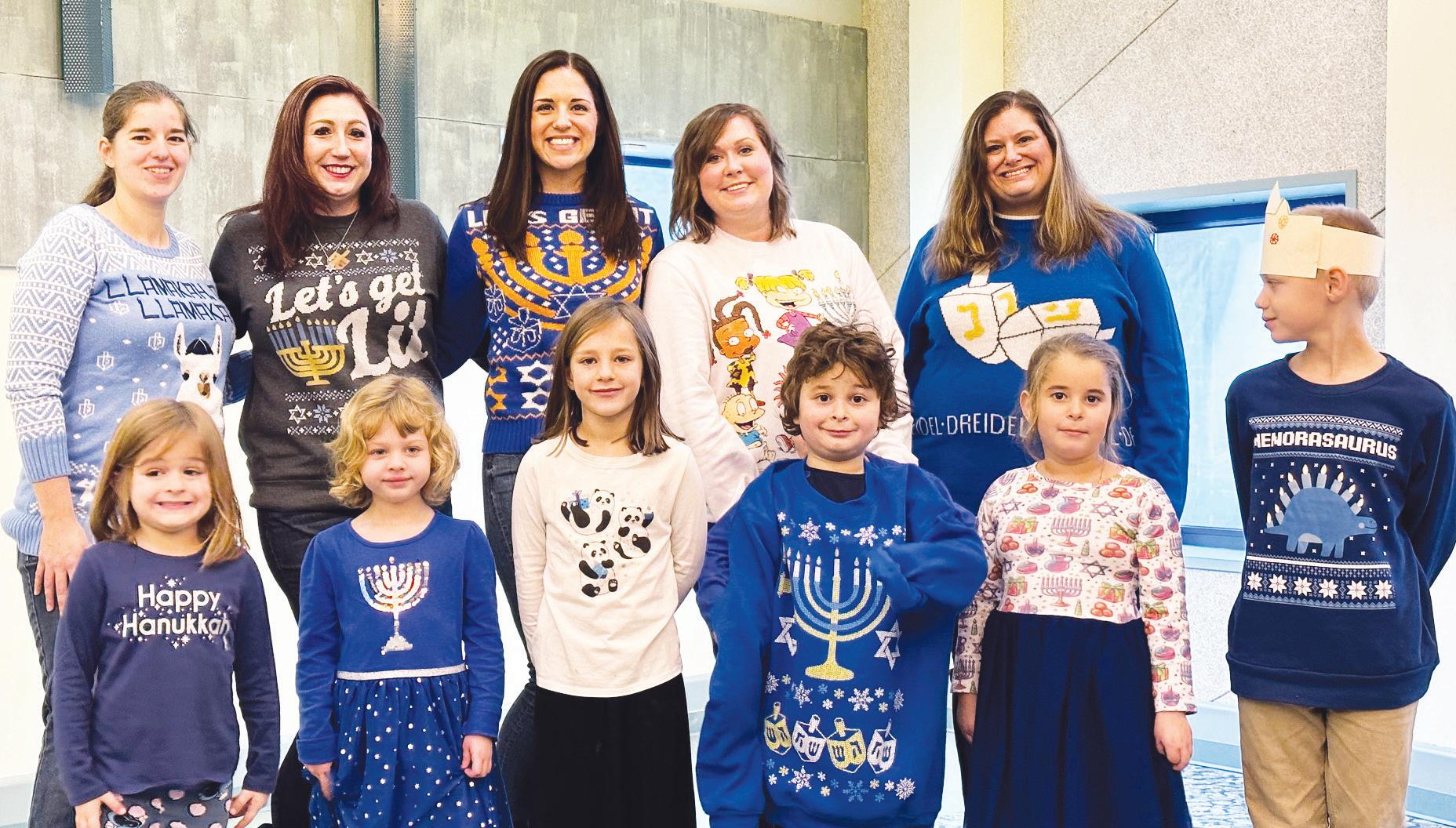
Native Daytonian Justin Hollander was already 29 years old in 2008 and three-plus years into a law career when he took a tedious, low-paying, entry-level job as a “stat stringer” at San Diego Padres games.
During home games, he sat next to the official scorer, coding in every play to be sent to ESPN in New York.
“I made it a condition of every day job I had that certain days, certain times, I had to be at the park. If there was work (in the law office) to be done, I would go back late at night.
“When I was scheduled to go to a Padres game, I had to go work, which seems insane to tell your boss when you’re a lawyer. But it was something that was important to me.”
It worked out. In October, Hollander was named general manager of the Seattle Mariners, recently named the best organization in the majors by Baseball America. The Mariners had a very successful year, starting out with its minor league system ranked No. 1, also by Baseball America

The Mariners garnered more headlines last summer as Hollander, an assistant GM at the time, helped extend pitcher Luis Castillo’s contract following a trade with the Reds. In mid-November, Hollander traded with Toronto for 2021 All-Star outfielder Teoscar Hernandez, his first deal in his new position.
Hollander became a bar mitzvah at Beth Jacob Congregation and graduated from Northmont High School. He is believed to be the first Daytonian to hold a major league GM position, certainly the first from Beth Jacob.
“I was a no-talent athlete,” Hollander said. “I knew playing wasn’t an option.”
Once, in high school, he participated in a job shadow program, following a lawyer for a day. One of his friends was able to shadow Dayton Daily News Hall of Fame sportswriter Hal McCoy, who covered the Reds.
“My friend had more fun than I did,” said Hollander, who eventually made it to the fun side.
Justin finished Northmont a year early to attend Ohio State, where his brother Jonathan was a senior. Then he graduated from University of San Diego School of Law and was working as an insurance and employment litigation lawyer when he accepted the stat job.
“I was sort of kicking the can down the road for three years hoping something would fall in my lap,”
Hollander said.
The can landed when an Angels employee friend in his fantasy baseball league told him of an opening with the team.
“It was as an (operations) assistant,” Hollander said. “I asked the guy if I would be a fit. He said yes, if I wanted to do it. It didn’t pay much money and I’d have to work crazy hours, get coffee when people wanted it, pass out meal money, write advance scouting reports, prepare notes for the draft room, and all that stuff. It sounded amazing.”
Another person turned down the job. Hollander, next in line, did not. Even though the pay was a hefty cut from his work as a lawyer, he justified the move by noting he wasn’t yet married, didn’t own a house, and his brother gave him his old car.
“I bought a TV at one point,” Justin said. “But I didn’t buy anything (else). I was just saving, sharing a three-bedroom apartment with two other guys. My room was the size of a bed, basically.
“Whenever there was food in the GM suite or in the clubhouse, I made sure I grabbed a plate. You just made it work. I don’t want to make it dramatic. It wasn’t like I was living in a homeless shelter. I was just living modestly.”
Hollander graduated to more livable-paying jobs, married Whitney (through JDate), an anthropologist, has two young children, and stayed nine seasons with the Angels, moving to Seattle in 2016 to reunite with his old boss, Jerry Dipoto.
He and Dipoto helped lift the Mariners into a playoff team following 20 years of being shut out of the post-season. While they didn’t win, the eventual champion Houston Astros had a rough time beating the Mariners, including 1-0 in a memorable 18-inning game.
It wasn’t enough for Hollander.
“I was disappointed this year when we didn’t win the World Series,” Hollander said. “I thought we had a chance. We want to win the World Series. That absolutely is our goal next year. We’re not doing this for participation trophies.”
In 2022, the Mariners won almost all their series with playoff teams — except, notably, with the Astros.
“We have one of the younger rosters in the American League, and while the Astros are in our division and never seem to get worse, we have to find ways to close the gap,” Hollander said.
He’s in a position to try that.
In the ultimate act of tzedakah, Bart Weprin, of blessed memory, co-chaired the project to create the Jewish Cemeteries of Greater Dayton while dying.
Always looking out for future generations of his family and community, he created an organization to preserve the dignity of our cemeteries in perpetuity. Consolidating the three Jewish cemeteries made sense to him practically. More importantly, it was a way to honor the memory of his adored parents and grandparents.
Leading by example, he showed his children, Ben, Andrew and Becky, the importance of caring for their hometown Jewish community. Now living out-of-town, they all contributed to the Jewish Cemeteries of Greater Dayton campaign to honor their father and to preserve the dignity of his eternal home. And they hope their participation will inspire generations of Daytonians living around the country.
When Bart’s children visit Temple Israel’s beautiful cemetery, they feel a sense of connection with the generations that came before them which they now share with all of Bart’s grandchildren.

Jewish Cemeteries of Greater Dayton is an endowment organization created to maintain our three Jewish cemeteries in perpetuity. Please join us as we strive to maintain the sanctity, care, and integrity of these sacred burial grounds.

Preserving our Past Ensuring Our Future
‘We recognize how much he cared.’
— Andrew, Becky & Ben Weprin with their father, BartJustin Hollander became a bar mitzvah at Beth Jacob Congregation and graduated Northmont High School. Seattle Mariners By Elli Wohlgelernter, JTA
Kibbutz Gezer, Israel — Bill James, the influential baseball writer, historian and statistician, once described the great Yankee first baseman Don Mattingly in only four words: “100 percent ballplayer, 0 percent bulls—.”
The same can be said of Alon Leichman, the first athlete born in Israel to make it to the major leagues, having just been named assistant pitching coach of the Cincinnati Reds.
Under manager David Bell, Leichman will help instruct the team’s pitchers — including Chase Anderson, Luis Cessa, Fernando Cruz, Alexis Díaz and Hunter Greene — on mechanics, pitch selection, preparation, concentration and execution.
His journey has been unlikely, verging on preposterous: How could someone from Israel, where baseball is barely an afterthought, step out of the wheat fields of a kibbutz to the highest level of baseball in the world?

The 33-year-old Leichman is the product of Kibbutz Gezer, the youngest child born to two idealists who grew up in Zionist youth groups and helped found this kibbutz in central Israel in the 1970s together with other Anglo — that is, English-speaking — Zionists.
But David, Alon’s father, couldn’t leave it all behind in Queens, N.Y. He was a baseball fan, a big baseball fan — “I always knew that if, God forbid, there’s a fire in my house, I know where
my baseball glove is” — and one day, he and his fellow kibbutz residents had an idea: Why don’t we cut off a slice of the wheat crop and construct a regulation-sized field in the southwest corner of the kibbutz, where we can all go play when we get off work?
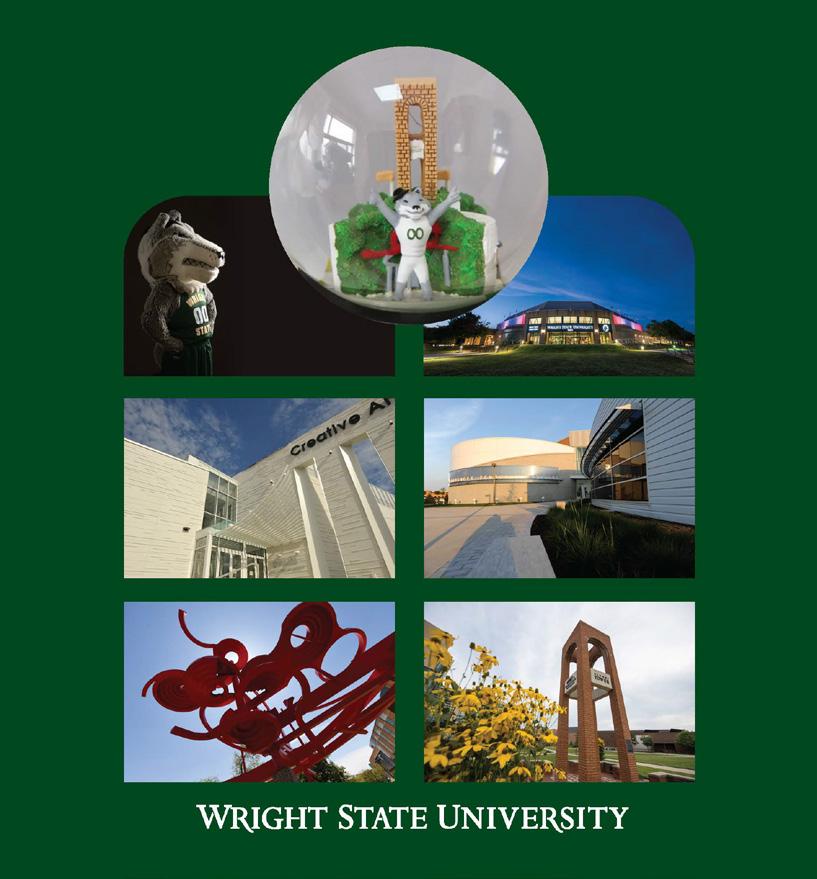
That was 1983, and there wasn’t a single baseball or softball field in all of Israel. So David, who was in charge of construction on the kibbutz (Alon’s mother, Miri, is the kibbutz rabbi), built his field of dreams, just 450 yards from his front door and in the shadow of the
4,000-year-old archaeological site that gives Gezer its name.
And that’s where Alon Leichman grew up, first brought to the field by his father for the 1989 Maccabiah Games, five weeks after Alon was born on May 29.
“I never related to that field as the place my dad built,” Leichman said. “It was a field that was on the kibbutz. Growing up, everyone around me played — my older brother played, and all my friends, a little older than me, played.
“I remember — I was 4, in gan (prekindergarten), and I would walk to the baseball field and practice. I vividly remember being in the gan and going to practice. But baseball on the kibbutz is just something that I grew into. Everyone did it; I was not special, just another kid who played. I happened to love it a lot.”
So he played and played and got better and better. By age 10, he was on the team representing Israel at a tournament in the Netherlands. But baseball in Israel back then was in its infancy, and there was not enough money to pay for the team to travel. So Leichman had to work extra hours to get the kibbutz to fly him over.
Not that he wasn’t used to working. Like all kibbutz members, he was already contributing by third grade. But now he had to put in extra hours, picking olives or milking cows to make the extra money.
“I liked milking cows,” he recalled. “Sometimes it’s hard work, but I got more of a kick out of it than hitting an olive tree” to shake loose the olives.
Leichman remembers well that tournament in Holland, the first time he wore the Israeli uniform representing his country abroad.
“It was really cool,” he recalled. “A sense of pride. That’s the first time I think I felt like: ‘You’re not just Alon, you’re not just representing the kibbutz anymore — you’re representing a whole



country.’
“I knew back then that Israel was not on the best terms (with) the world. So it was something that I was aware of: that part of our job of playing baseball is also making sure that these guys get to know Israelis other than what they hear on the news and show them that, you know, we’re good people.”
The 5’-8” right-hander kept playing, kept improving, and kept representing Israel at tournaments. He played in the one-season Israel Baseball League in 2007 as the second-youngest player, served in the Israeli army from 2007 to 2010, and then headed to the states to play college ball at two schools, Cypress College and the University of California, San Diego.
In his first appearance at Cypress, his elbow blew out and he needed what’s known as “Tommy John surgery” to repair a torn ulnar ligament inside the elbow. Then he got hurt again and had a second Tommy John surgery. But when he got hurt a third time and the doctor said he needed to go under the knife yet again, Leichman knew that his hopes for a professional playing career were over.
But not before proving to himself that he had what it takes.
“I know I was good in Israel. I knew that. But I had no idea how I would fare coming to the States. I thought I could fare (well) there, but I really never knew because I had never faced those types of hitters.

And then, in my first game, I did really well for two and a third innings, four strikeouts. No one got on. It was 1-2-3, 1-2-3, and then I got the first guy out in the ninth. And on a onetwo fastball, my elbow popped. So it was like, ‘OK, I can do this here.’”
His love for the game never left him, and Leichman grew into an insightful and intuitive coach. His expertise and aptitude were selfevident.

“Alon will be a big-league coach one day,” pitcher and teammate Alex Katz said three years ago. “It’s hard to get a coaching job in affiliate ball without professional experience, let alone non-affiliated experience. But he’s just one of the most intelligent baseball minds I’ve ever been around. And he’s young.”
Leichman said his strength is “helping guys get better. Communicating with them. Being able to relate to them. Getting on their level. Simplifying it for them. And being creative and finding ways to throw more strikes.”
Despite the surgeries, Leichman could still pitch if he did it sparingly. He joined Israel’s World Baseball Classic teams of 2012, 2016 and 2017 as a player or coach; pitched for the European Baseball Championship team in 2019; threw in the Olympic qualifying tournaments in 2019; and hurled one perfect inning against Team USA at the Olympics in

2021 in Tokyo. Along the way, he also earned a black belt in jujitsu.
But coaching was his future, and after being given a chance in 2017 to instruct in the Seattle Mariners farm system, Leichman kept moving up, from Single A to Double AA to Triple AAA, before being grabbed by the Reds to join their major league staff this season.
His father is overwhelmed. “It’s unbelievable,” David Leichman said. “I’m still shaking and crying to myself about how wonderful this has been. It’s really amazing.”
Alon is no less shell-shocked, having agreed to sign a contract with the Reds on the same day the New York Mets asked to interview him about a potential job.
“It’s not really sinking in yet, to be honest,” he said while in Israel recently to visit his family on Gezer. “But it’s definitely a dream come true, something I’ve been dreaming about since I’m a little kid. Obviously, I wanted to be there as a player, but once I got hurt and realized that playing was not an option anymore, I started pursuing coaching. I wanted to do it at the highest level. The dream remained; it just took a different route. But it’s still as exciting.”
Leichman is still undecided on whether to join Team Israel’s coaching staff in Florida for the WBC in March before heading back to Goodyear, Ariz. to rejoin the Reds in spring training. But this product of the wheat fields of Gezer won’t ever forget from where he’s come: His uniform numeral, 29, is a constant reminder. It’s his laundry tag number at the kibbutz.
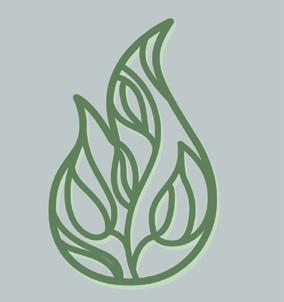



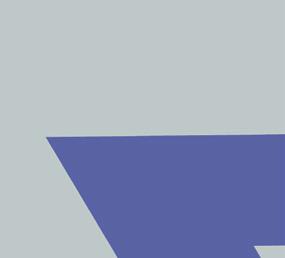


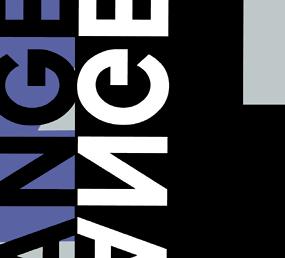 By Ron Kampeas, JTA
By Ron Kampeas, JTA
In its closing session, Ohio’s legislature passed a law imposing penalties of up to 180 days in jail and a $1,000 fine for “zoombombing” religious services, a practice that antisemites have used to intimidate Jews.
The law, Increasing Penalties for Disturbing a Religious Service, passed unanimously in the state Senate. It had previously passed in the state House, 95-1.
Ohio Attorney General Dave Yost sought the law after discovering that disrupting a religious service was only considered a class four misdemeanor, incurring penalties of up to 30 days in jail and $250 fines.
A Republican who was elected in 2018, Yost has sought legal action against abortion-rights activists who have targeted anti-abortion clinics since the U.S. Supreme Court ended federal abortion rights last summer.
While anti-abortion protesters have for decades targeted abortion clinics, sometimes with deadly violence, some pro-abortion protesters have more recently sought to disrupt church services as part of their activism.
In formally endorsing the bill in November, Yost described the impetus: A Catholic church in Columbus in January was conducting an annual “memorial service for the unborn” when protesters raided the church, shouting “This church teaches hate!”
“Last January, a group of protestors entered St. Joseph Cathedral in downtown Columbus, Ohio carrying signs and loudly chanting. The chaotic scene that unfolded included a protestor rushing toward the pulpit and protestors resisting removal by law enforcement,” Yost wrote. “The service was ultimately halted and unable to resume until all protestors were removed from the premises.”
Yost wanted to make the offense a first-degree misdemeanor, which incurs harsher penalties. The Republican legislators Yost asked to advance the legislation, consulted with religious communities, and as a result of talks with Jewish groups, added into the legislation zoombombing, which antisemites used multiple times to target Jewish services
that went online because of the Covid pandemic.

Howie Beigelman, the executive director of Ohio Jewish Communities, which represents the state’s Jewish organizations on the state level, worked closely with the sponsors on the bill and credited the state’s Jewish Federations, its Jewish Community Relations Councils, its Jewish community security directors, and the state offices of the Anti-Defamation League and the American Jewish Committee for lobbying for the bill.
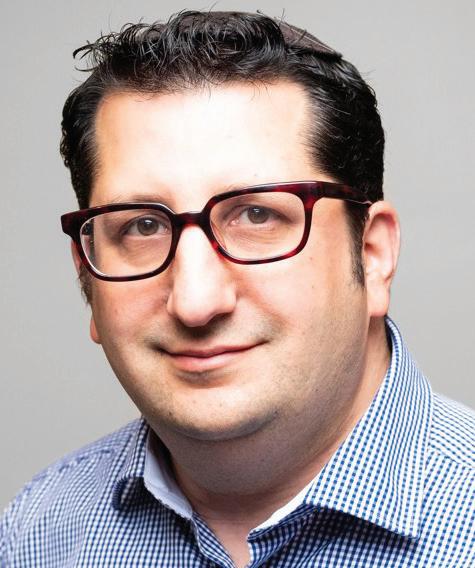
“They wanted to do the bill,” Beigelman said of the sponsoring legislators.
“And then they talked to us and we said generally the bill is important, but we also want you to be very specific about zoombombing. And they’re like, what’s that? I was like, Well, let me tell you, it’s happening a lot to our community.'”









The Ohio legislature also passed unanimously the Testing Your Faith Act which requires public colleges and universities to accommodate religious observance when it conflicts with exams and assignments.
Ohio Jewish communities advocated for this legislation as well, and credited Convergence on Campus, a chaplaincy group, as well as Jewish groups working on and off campus for their advocacy.
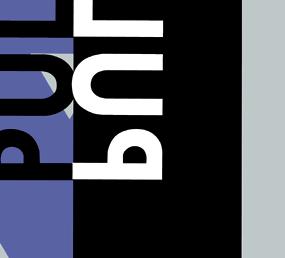
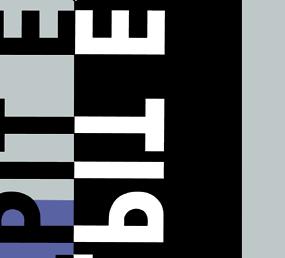





Beigelman
It imposes penalties of up to 180 days in jail and a $1,000 fine
7:00 p.m. Livestream at the Woodbourne Library 6060 Far Hills Ave., Centerville No cost to attend. RSVP through our website at jewishdayton.org/events
An A air of Spies: A Novel
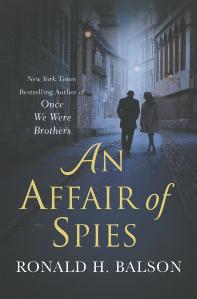











While attending an evening course at Columbia in 1941 Nathan Silverman, born in Berlin and who fled after his uncle was arrested on Kristallnacht, notices a recruitment poster on a university wall and decides to enlist in the military to help fight the Nazi regime. To his surprise, he is quickly selected for a special assignment; the Allies are racing to develop a nuclear weapon before the Nazis, and a German theoretical physicist is hoping to defect. The physicist was a friend of his father, and Nathan’s mission is to return to Berlin via France and smuggle him out of Europe.











Connect with us! Check out our events. For more information, see our calendar at jewishdayton.org.

Monday, January 16, 8:00 a.m. - 5:30 p.m.Winter Camp Shalom



























Wednesday, January 18, 7:00 p.m. - 9:00 p.m.CABS – Ronald Balson, An A air of Spies: A Novel
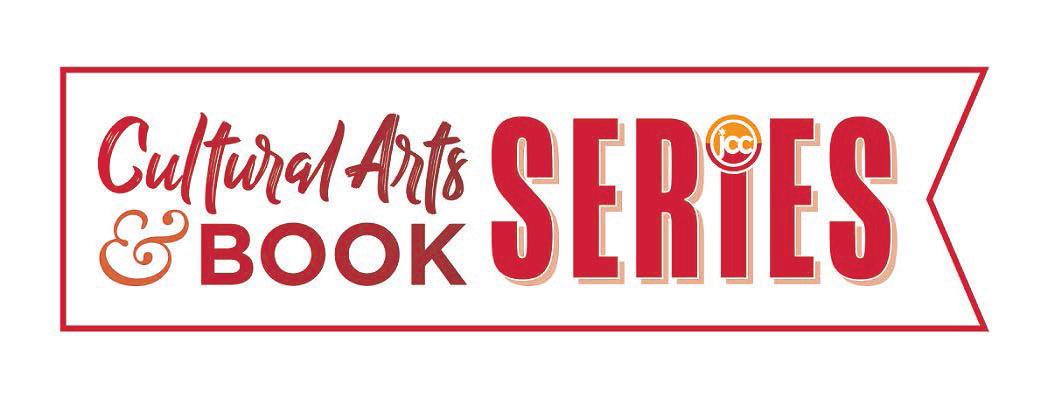

Saturday, January 28, 7:00 p.m. - 9:00 p.m.JCC Boomer Event: Matt Klickstein and Stephen Levinson
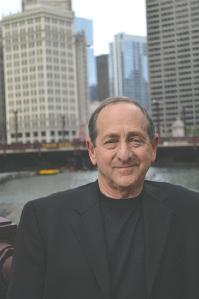
Sunday, January 8, 2:00 p.m. – 4:00 p.m. Dayton Art Institute 456 Belmonte Park North, Dayton 45405



The Dayton Art Institute welcomes PJ Library and Hillel Academy for an afternoon of art and exploration!
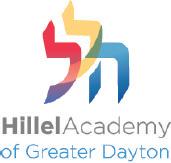

Ages 8+ and parents will join Hannah Levinson, Hillel Academy Art Educator, in the studio, creating art inspired by Jewish artist David Levinthal
Ages 7 and under will discover the Lange Family Experience Center, an interactive art gallery , and learn about Tu B’Shevat. Space is limited. RSVP by Wednesday, January 4 at jewishdayton.org/events to secure your spot! No cost!

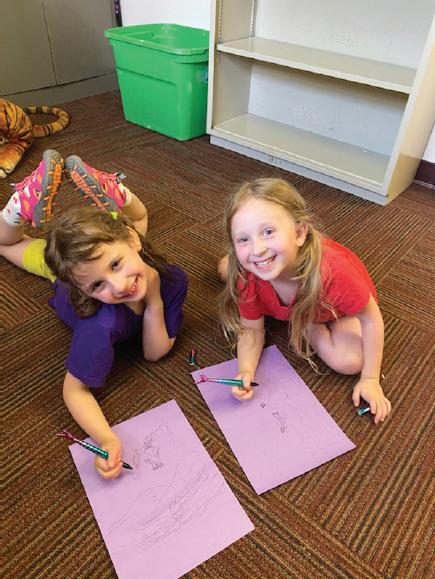

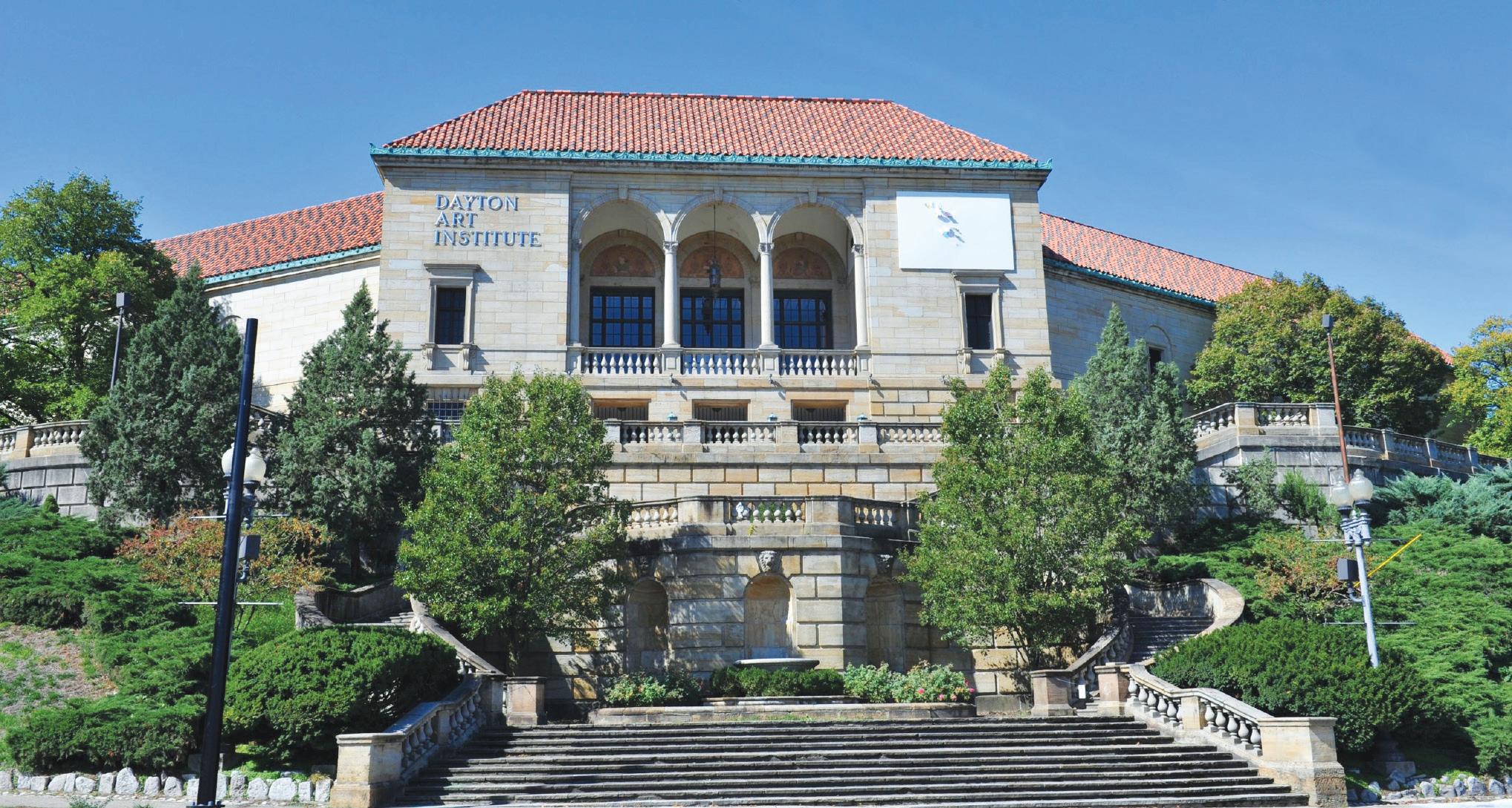
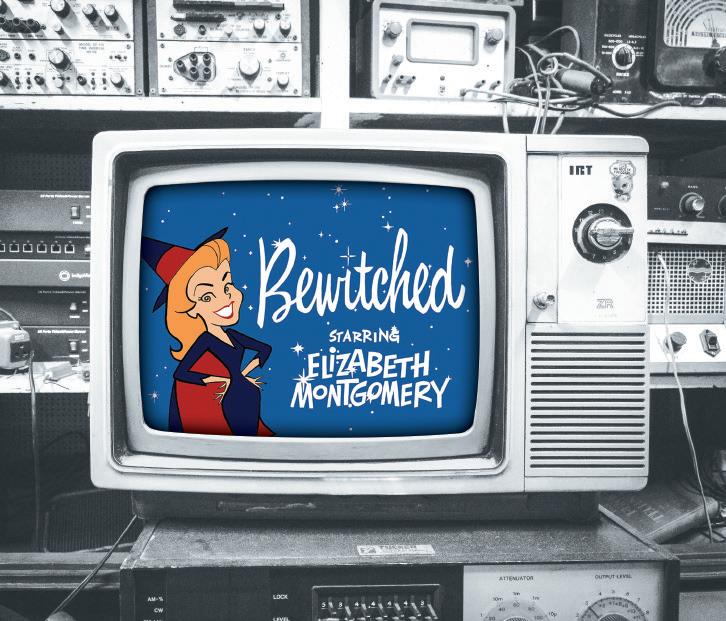



















































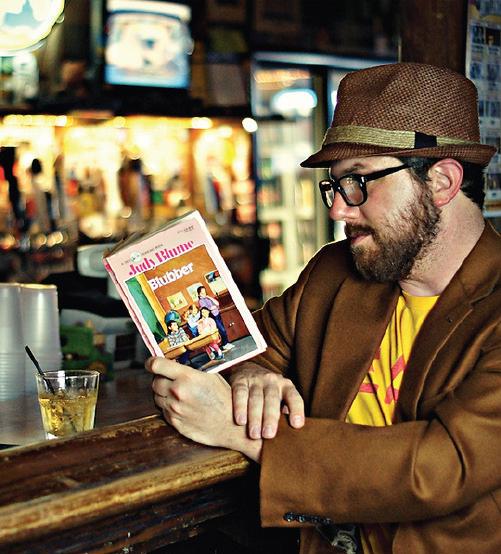












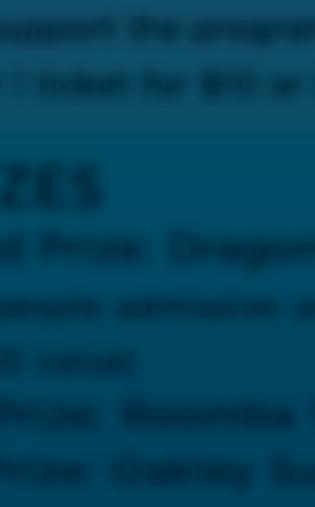

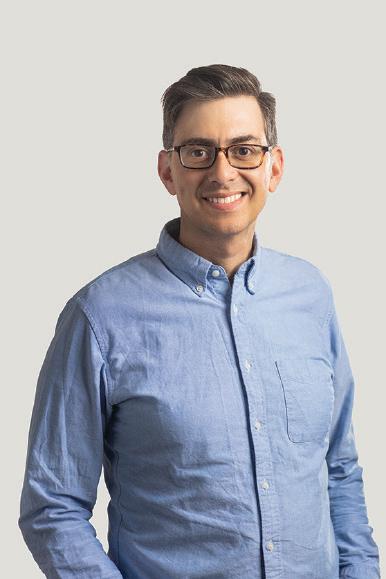








SENDING WISHES FOR A SPEEDY RECOVERY TO › Sue Ducker
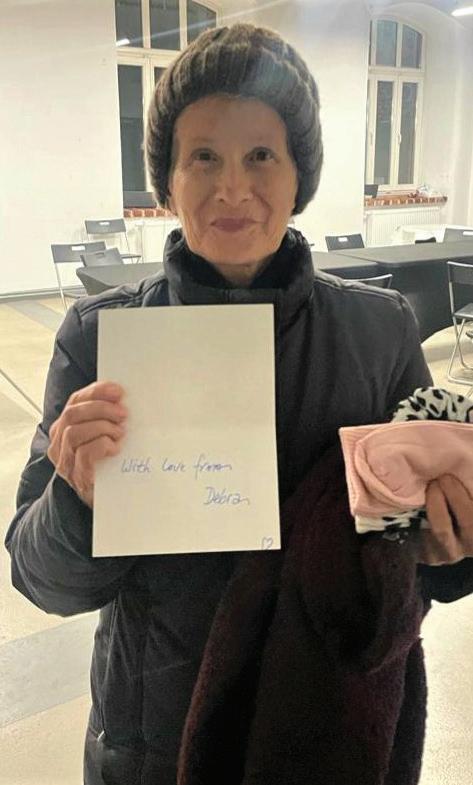
Bev and Je Kantor


› Dr. Marc Sternberg Sue and Don Zulanch JOAN AND PETER WELLS AND REBECCA LINVILLE FAMILY, CHILDREN AND YOUTH FUND IN MEMORY OF › Herta Wells
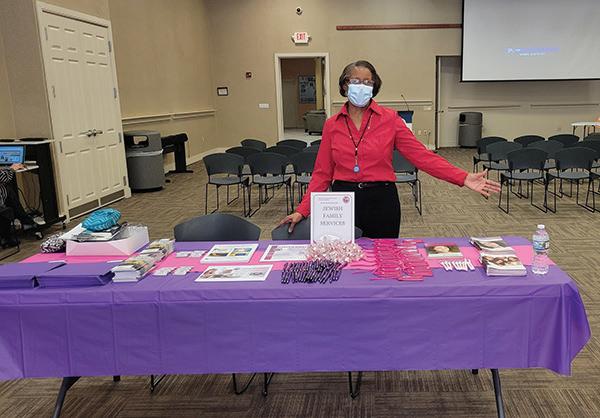
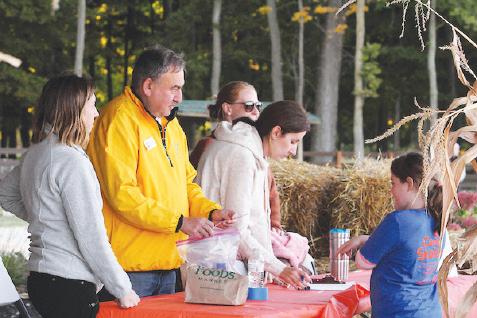
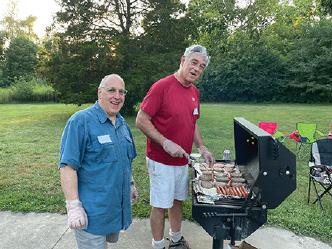

SENDING SPECIAL BIRTHDAY WISHES TO › Ted Weinreich WISHING A SPECIAL BIRTHDAY TO
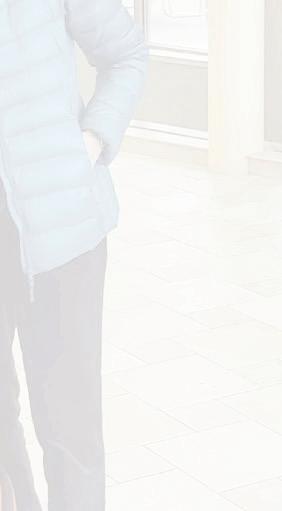






“
The Jewish Federation has always been very important for our community and for our family. We are especially grateful for the Jewish Family Services’ attention and care for our late daughter Debra. The crisis in Ukraine moved us deeply and the opportunity to send assistance directly touched us. Thank you for everything you do.”
- Alice Saidel
One of the refugees receives some much needed items from the suitcase that were donated in Debra Saidel’s memory.
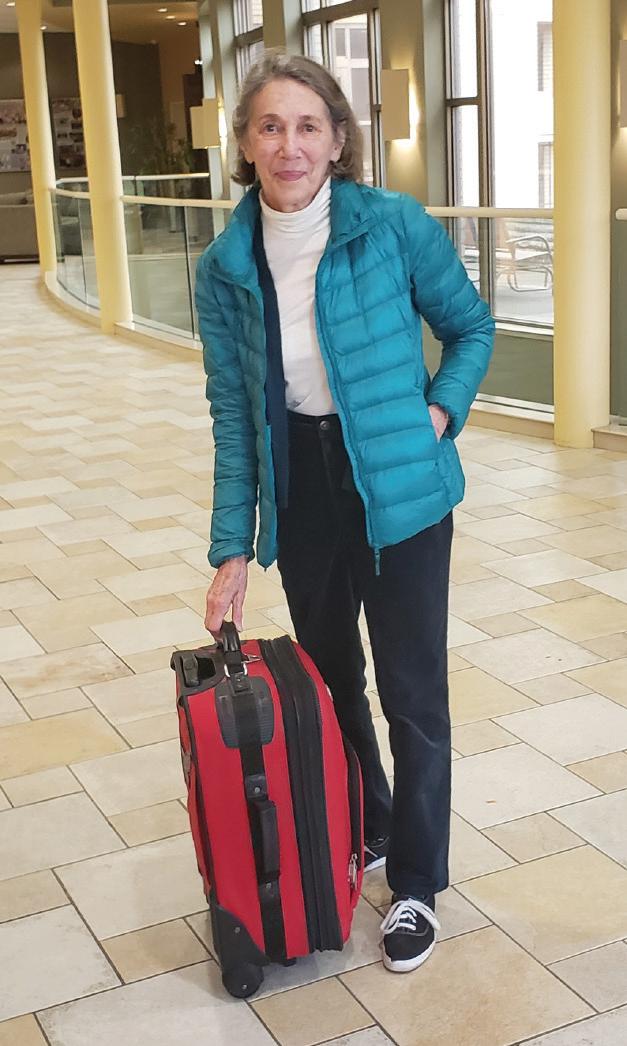
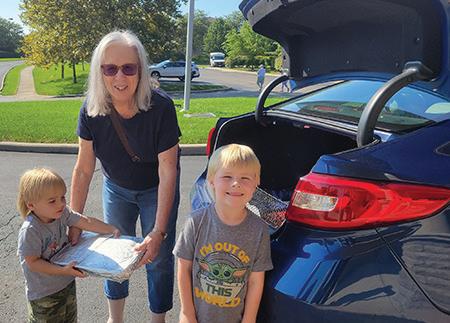
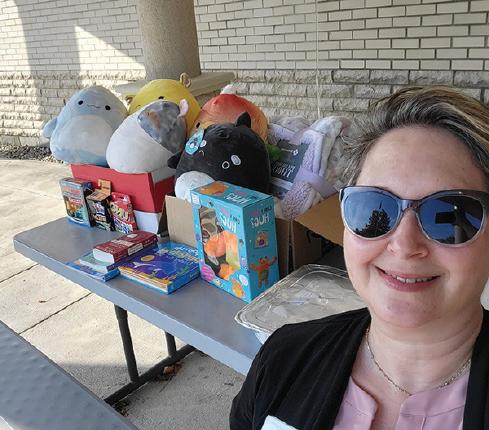
Because of your generous donations to the 2022 Annual Campaign, our Jewish community is thriving! Your donations allow us to engage our community in meaningful ways, care for those in need, and strengthen Jewish life!
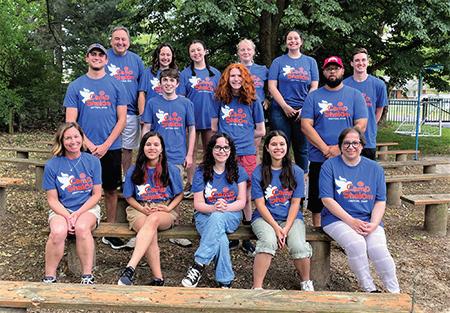
THANK YOU FOR YOUR CONTINUED SUPPORT!
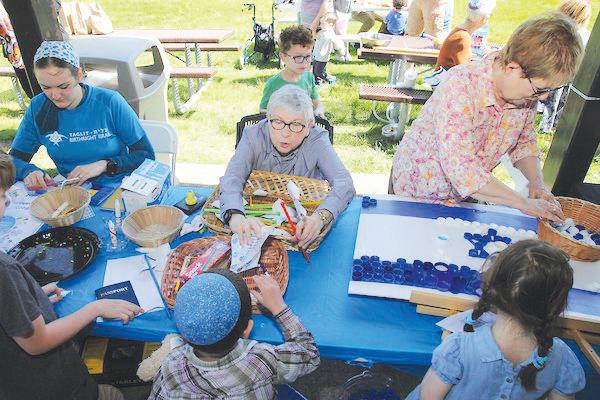
LONDON — David Baddiel, a comedian-turned-activist against antisemitism who calls himself “one of the U.K.’s very few famous Jews,” was holding court in the basement of one of Britain’s best-known television studios.
As a reporter headed hurriedly for the exit, Baddiel slouched into his chair, seemingly exhausted by the interview he had just completed about the forthcoming documentary based on his 2021 bestseller, Jews Don’t Count
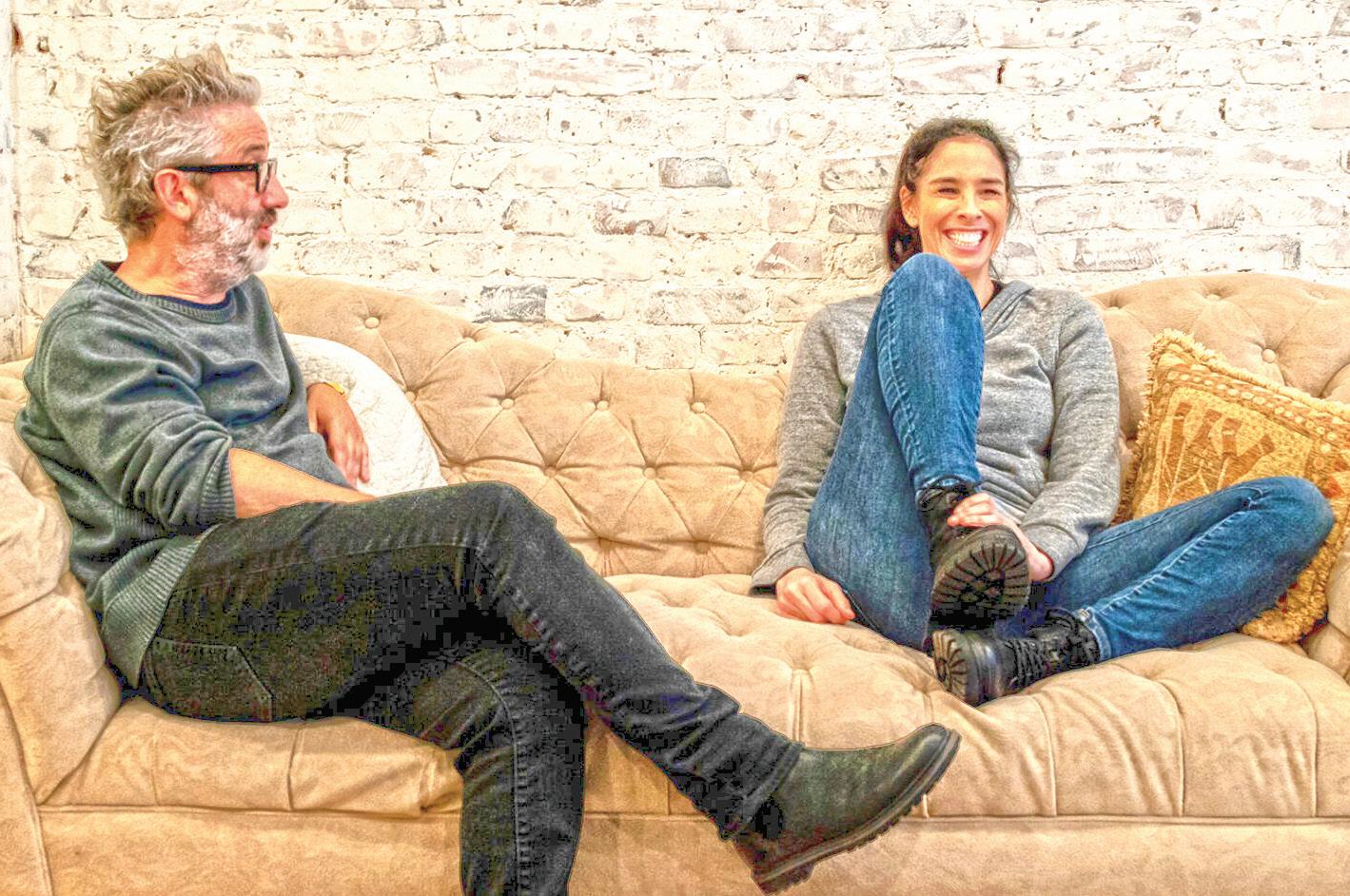
“I am speaking to many people like the last journalist who had not thought about any of this in their life,” he said.
The “this” Baddiel was referring to was to the idea, outlined in his book, that progressive anti-racists are guilty of hypocrisy toward Jews by not viewing them as worthy of similar protection or championing as other minorities because they are seen as White, privileged, and wealthy.
When the book came out last year, it received rave reviews, and Baddiel has since become seen by some as a “voice for Britain’s Jews.” He often litigates the finer points of contemporary antisemitism as a guest on radio and television, and he has been quick to square off with trolls and critics on Twitter.
Now, with the premiere of an hour-long documentary also called Jews Don’t Count on Britain’s public Channel 4 network, Baddiel gets a primetime slot to make his case to a bigger audience. Featuring Baddiel’s interviews with Jewish stars of pop culture in both Britain and the United States — ranging from comedian Sarah Silverman to novelist Jonathan Safran Foer to actor Stephen Fry — the film argues that “in a culture where all forms of racism are being monitored, called out, and held accountable, one form is apparently invisible.”
“With the intensification of identity politics and concerns about minorities, and offense and inclusion and representation, all that stuff seemed not to be tracking for Jews,” Baddiel explained as the general point of his work. “We seemed to not be part of that conversation. There seemed to be less offense about antisemitism and less inclusion and representation of Jews.”
Baddiel, who shot to fame in the 1990s when he collaborated with fellow comedian Frank Skinner for a BBC sketch show on soccer, is also known as the co-author of Three Lions, which has become the de facto anthem for the English national soccer team and has recently enjoyed a revival during England’s tournament runs. He has also appeared on several television shows and has published several children’s books.
He became a more prominent voice as a campaigner against antisemitism during Jeremy Corbyn’s scandal-plagued tenure as Labour Party leader from 2015 to 2020 — though he is keen to stress that neither the documentary nor his book are about “Jeremy f—ing Corbyn.” His move into documentary making follows his appearance in a well-received BBC documentary, Confronting Holocaust Denial, that aired last year.
Baddiel said he cares less about specific arguments under the umbrella of his broader argument. Regarding the “Jewface” debate, for example, over whether or not Jewish actors should play Jewish characters on screen, Baddiel claims he is “not really interested” either way — even though the topic takes up a large portion of his documentary, coming up in conversations with actors such as Silverman, Miriam Margolyes, and David Schwimmer.
“What I am interested in is that it is empirically the case that in casting directors’ offices they are saying that ‘this is an autistic role, so we have to get an autistic actor.’ Or that ‘this is a gay role, so we have to get a gay actor,’” he continued.
“Whether it is right or not is not the point,” he added. “They are not saying that ‘it is a Jewish role, so we have to get a Jewish actor.’”

Perhaps controversially, Baddiel — while recognizing that there is a certain privilege in being able to “pass” as White — has argued that being White is more about being “protected because you are a member of the majority culture” than it is about skin color. He says antisemitism is racism, and not about “religious intolerance.”
In the documentary, Schwimmer says, “I have never felt White.”
“I am highly aware that I pass as White and I enjoy a lot of the privileges of being a straight, White man, able bodied, I get it, I understand, and I am very aware of my privilege,” Schwimmer says before mentioning the murder of two Jewish civil rights activists by the Ku Klux Klan in Mississippi in 1964. “I never felt White, because for me, White means safe.”

Schwimmer, who recently spoke at the Anti-Defamation League’s conference in New York City, goes on to say that while Friends, the sitcom he starred in, has been criticized for its lack of diversity, it did include a minority presence. There were multiple Jews, in the form of Schwimmer’s Ross Geller character and his sister Monica, along with Jennifer Aniston’s character, Rachel Green.
“You know what would happen if you said that,” Baddiel says in response. “People would get aggressive about it.”
hardly speaks for all British Jews.
$18 Subscriber
One-year subscription to The Observer and acknowledgment in The Observer ($18 value)
$36 Double Chai
One-year subscription, acknowledgment in The Observer and one free one-column holiday greeting ($30 value)
One-year subscription, one-year acknowledgment in The Observer and three free three-column holiday greetings ($126 value)
$100
One-year subscription, acknowledgment in The Observer and one free three-column holiday greeting ($54 value)
All listed in Guardian Angel, plus the gratitude of knowing how much you help support Jewish journalism in the Miami Valley ($126 value)
Continued from Page 15
Schwimmer responds: “You’re right, people would just be like: ‘not a real minority.’”
Baddiel hardly speaks for all British Jews. One case in his book and documentary involves the fact that British Jews are not offered “Jew” as an option on the census when asked to select their ethnicity. (The same issue has been debated in the United States, where White respondents were asked in the 2020 census to write in their racial “origins.”)
“It is othering and alienating” that Jews do not have a distinct option box, Baddiel said.
But the view that Jews should not have an ethnicity option has historically and continues to be the position of the main representative body for British Jews, the Board of Deputies, as well as the Institute for Jewish Policy Research, a think tank that studies the demographics of British and European Jews.
The Office for National Statistics, which administers the census, investigated the possibility of adding a Jewish ethnicity option ahead of the 2021 census in England and Wales. The ONS consulted with the Jewish groups and, in cooperation with polling firm Kantar, concluded that Jews in Britain viewed it “highly unacceptable” given historical concerns about discrimination and “the racialization of religious groups.”
The ONS and Kantar found that most Jews “did not identify as an ethnicity” and that adding an ethnic option would be counterproductive, as “its inclusion may cause participants to question whether they wanted to complete the census.”
Baddiel questioned the conclusion, arguing that the most recent research was “a long time ago” and that such views were “massively out-of-date notions of what representation and inclusion looks like.” He said he had “certainly” felt demand for a Jewish option “from the people who speak to me.”
Baddiel’s book garnered mostly positive reviews, but Josh Glancy, a British-Jewish journalist, wrote in the Jewish Chronicle that he Baddiel’s ideas implied “emphasizing and amplifying every aspect of Jewish victimhood” to a point that would require “a level of self-imposed martyrdom that simply doesn’t align with most contemporary Jewish lives.”
asserting his own lack of privilege that he forgets his obligations to others: not least to talk and to listen to them.”
Baddiel’s idea that “progressives turn a blind eye to and dabble in just one form of racism, and that the experiences that he grapples with would not occur if he were Black, Asian, or from another ethnic minority” would “struggle to survive a conversation with more than three people from any other minority,” Bush argued.
Baddiel said he is “sort of not that interested” in people’s responses, adding, “Glancy is wrong. He doesn’t understand the book.”

In response to Bush, Baddiel said: “That is not something that most minorities are asked to do. I think that most minorities, particularly now, when they present testimony of their lived experience of racism, it would feel racist to say to most of them, ‘why should I listen to this, because you don’t seem to talk about any other minorities.’
“That’s a Jew’s Don’t Count phenomenon, what you are talking about,” he continued, “that it is incumbent upon Jews to have to make more space.”
Among the portions of the documentary that have attracted the most interest in Britain is an apology that Baddiel offers to Jason Lee, a former professional soccer player whom Baddiel mocked in blackface for a sketch in the 1990s. Many feel that Lee’s career was negatively affected by Baddiel’s sketch, even though he pushed back on that idea in a recent interview with the Guardian. Baddiel has accepted that his portrayal of Lee was racist.
Lee, who has since gone on to campaign against racism in soccer, was also interviewed in The Times, opening up about how he had felt “violated on so many levels” by Baddiel’s sketch.
For his fellow Jews, Baddiel is less conciliatory. He claimed to not be aware of criticism from within the Jewish community over his theses. “Literally no one” had come to him with any concerns, he said. He often feels “whatever the Jewish equivalent of the Bat Signal is” and recalled how a senior Labour Party politician “came up to me yesterday and said: How does it feel to be the person saving the Jews?”
Return with payment to: The Dayton Jewish Observer, 525 Versailles Drive, Dayton, OH 45459
Stephen Bush — a prominent Black and Jewish journalist who conducted a landmark racial inclusivity report for the Board of Deputies last year, and who is interviewed for a few seconds in the documentary — argued in The Times that Baddiel was “so concerned with
At one point during his interview, Baddiel interrupted a question about why he had not chosen to speak to any visibly Orthodox Jews — despite their presence in the background of several shots in the documentary — by repeatedly asking: “What’s your problem? What’s your problem?”
“I am not really interested in understanding Jews,” he said. “I am interested in the ways that our present way of seeing racism fails Jews.”

I think each veteran chose military service for a different reason. For some it was patriotism, for some to learn a skill, and some just needed a job. Going back earlier, some of us were drafted. But each of us gained something from that experience, along with memories, both good and maybe not so good. In my case, my military service brought me to loving Judaism.
When I was a kid back in the '50s and '60s, Hebrew school was no pleasure. The teachers did nothing to make it fun or even interesting. I think the most Hebrew I learned was “sheket, yeladim, quiet, children,” always yelled, never spoken. After my bar mitzvah, I refused to go to temple anymore or to postbar mitzvah classes.
I grew up in a kosher home. My parents were moderately observant, but usually went to synagogue only on the High Holidays. I usually got dragged with them each year. That was the extent of my religious activity for many years.
My high school was maybe a quarter Jewish. I had my little circle of Jewish friends, but I found most of the Jewish kids to be incredibly snobbish. I never fit in with any of the organizations that claimed to be there to bring Jewish teens together.
When I attended Ohio State, there was a Hillel and a Chabad, both within easy walking distance, but who needed them? Not me. I found my future wife, Helen, through a mutual friend, the spring of my last year in Columbus.
After graduating, I joined the Air Force in June 1970, and went to officer training school at Lackland AFB in San Antonio. Anyone who has served in the military can tell you that you’re thrown into a completely new life and environment and expected to adapt quickly. Nothing from your old lifestyle remains: not your daily routine, not your clothes, not even your hair style.
We trained hard for six days a week but got Sunday off. After spending four or five Sundays doing nothing but getting caught up on lost sleep, I decided to go to the Jewish service just to see something different for a few hours.
I walked into the designated multipurpose chapel, grabbed a prayer book and kipah from the Jewish shelf, and sat down. The prayers didn’t sound famil-
what do you think?
iar, but many of the melodies did.
And as I sat there, and I can’t explain why, I felt something comforting, like my first visit home after being away at college. I felt the presence of my parents and my grandparents. I started to feel at home. I attended the service again on several more Sundays and always left with a feeling of calm.
I then moved on to my operational base at Grand Forks, N.D to be a maintenance officer for Minuteman nuclear missiles. This time, I sought out the small Jewish congregation on the base and again found familiarity, and also instant friendship, so far from home.
We didn’t have our own Jewish chaplain, but the rabbi from Fargo came up once each month for a Shabbat service. Everyone got an aliyah. I stumbled through the English transliteration the first few times, but soon relearned the prayers we do for each Torah reading, and looked forward to my turn.
Everyone was far from home, but we were a family. I was happy to be with them. For Passover, I was invited to someone’s house for a Seder. For Rosh Hashanah, I drove all the way to Fargo to attend the service. No one had to drag me this time!
When I got out of the Air Force a few years later, we settled here in Dayton. My wife and I joined Temple Israel, then Beth Abraham, and eventually Temple Beth Or. When Chabad came to Dayton, we were invited to come to services. I was hesitant at first, but found them very warm and welcoming.
After seeing members of the congregation chanting portions of the service, I said to myself, “I can do that.” I started with my bar mitzvah Haftorah in 2000. Over the years, I learned a half dozen or so additional Haftorahs that I do there. Now, here’s the twist: When my dad used to come here to visit, guess who got taken to Chabad with us!
When we return to civilian life, we take with us not just the skills and confidence we learned, but also our call to service, and some new outlook about ourselves and our way of thinking. In my case, it gave me a new love for Judaism.
Steve Markman is a past Ohio department commander of Jewish War Veterans and past commander of JWV Post 587 in Dayton. He lives in Washington Township.
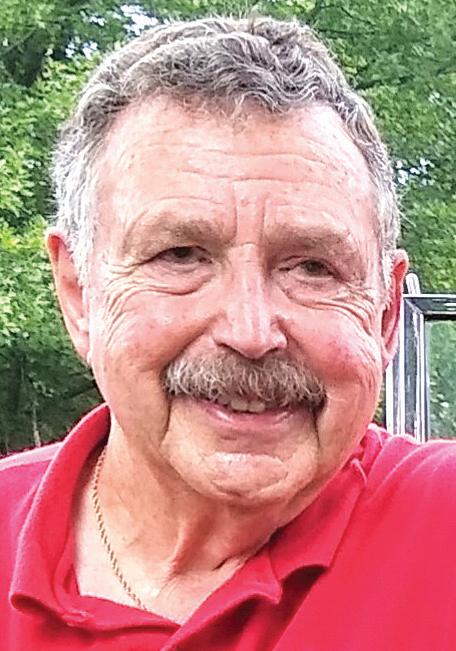
Unless you have been living under a rock for the past few weeks, and even if you’re not Jewish, you can’t miss the fact that antisemitism is back in the news again: Kanye West, Kyrie Irving, Nick Fuentes; extremists returning in droves to Twitter; President Donald Trump kowtowing to antisemites over dinner at Mar-A-Lago; Saturday Night Live opening with a monologue trafficking in antisemitic tropes; members of the Black Hebrew Israelites intimidating Jewish fans coming to Barclays Center, and an endless feedback loop of antisemitism coursing across social media.
Coming at a time when antisemitic incidents already had reached the highest point in recent memory, this is the kind of mainstreaming of antisemitism that we haven’t seen since the 1930s.
If there’s one thing I’ve learned as CEO of the AntiDefamation League, it is that when it comes to the Jewish people, hatred doesn’t discriminate.
When Kanye says Jews control the music industry, he’s not talking about rich Jews or conservative Jews. He’s not singling those who may support Likud or those who back Meretz, two Israeli political parties. He’s not calling out Orthodox Jews versus Reform Jews. He’s talking about us all.
Same with the White supremacists who are circulating Great Replacement conspiracy theories about Jews conspiring to bring more people of color and immigrants into America to “replace” White people. They don’t care if you are a die-hard MAGA voter or a card-carrying member of Democratic Socialists of America. It doesn’t matter: If you’re Jewish, you are in their crosshairs.
Another unfortunate example is the Mapping Project, an insidious campaign that ostensibly accused pro-Israel Jews of conspiring together in Boston. However, it didn’t target only Zionist organizations. They targeted all Jewish organizations, from a nonprofit helping the disabled to a Jewish high school.
And yet, while our enemies see us as one, the Jewish community too often seems riven by discord and infighting.
We are divided around religious practices and beliefs. We are deeply
Send letters (350 words max.) to The Dayton Jewish Observer, 525 Versailles Dr., Dayton, OH 45459 • MWeiss@jfgd.net
riven by politics. We do not see eye to eye when it comes to the State of Israel, and at times we can’t even agree on the definition of antisemitism itself.
At times, absurdly, some Jewish leaders seek to tear down other Jewish leaders even as it tears apart the community, as Steven Windmuller, a retired professor at Hebrew Union College in Los Angeles, recently documented.

I point this out not to diminish the value of debate and dissent — these are fundamental to our tradition. But we need to be mindful of when debate descends into division.
Indeed, when viewed by those on the outside, these internecine divisions within our community can lead to misunderstandings and confusion. Why can’t Jews agree on anything? At best, hostility makes us look petty, mean, and foolish. At worst, it allows antisemites to see within us whatever it is that they hate the most.
Usually in the aftermath of antisemitic attacks such as we saw after the Tree of Life shooting or the hostage situation in Colleyville, Texas, Jews from across the political spectrum set aside our differences and come together in a show of unity. We lock arms, proclaim we are one, call on our policymakers to do more, put up our defensive shields and hope for the best.
But at a time when a celebrity with a cult-like following, Kanye West, or Ye as he now calls himself, is using his platform of 38 millionplus social media followers to spread hateful tropes about Jews — the kinds of unhinged and hateful canards, such as Jewish control and power, that have led to antisemitic attacks throughout history — I would argue that the locking-arms response, while effective in the moment, does not have the staying power that we could achieve if we had a more unified and close-knit Jewish community.
What does have staying power? In this uniquely fragile moment, we must choose to embrace our differences, or at least accept them and lean into ahavat Yisrael, the love for our fellow Jews. We ferociously can disagree internally while standing completely united to external hate.
I felt the presence of my parents and my grandparents. I started to feel at home.Steve Markman
We need to be mindful of when debate descends into division.ADL CEO Jonathan A. Greenblatt
Beth Abraham: Saturdays, following noon kiddush lunch: Lunch & Learn w. Rabbi Glazer. 305 Sugar Camp Cir., Oakwood. 937-293-9520.

Beth Jacob: Tuesdays, 7 p.m.: Weekly Parsha w. Rabbi Agar. Thursdays, 7 p.m.: Jewish Law w. Rabbi Agar. 7020 N. Main St., Harrison Twp. bethjacobcong.org. 937-274-2149.
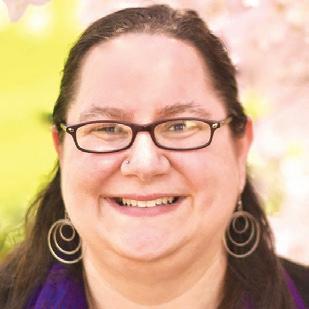



Chabad JLI, Book Smart: Six Mondays, Jan. 16-Feb. 20, 7 p.m. Hybrid. $72. 2001 Far Hills Ave., Oakwood. chabbaddayton.com.
Temple Beth Or: Sun., Jan. 8, 15, 22, 29, 12:30 p.m.: Adult Hebrew. Tues., Jan. 3, 10 a.m.: Apocryphal Study via Zoom w. Rabbi Chessin. Thurs., Jan. 5, 7 p.m.: Chai Mitzvah via Zoom. Wed., Jan. 18, 7 p.m.: Exploration of the Jewish Short Story via Zoom. 5275 Marshall Rd., Wash. Twp. templebethor.com.
Temple Israel: Tues., Jan. 10, 17, 24, 31, noon: Hybrid Talmud Study. Wed., Jan. 4, 11, 10 a.m.: Social Justice Torah Commentary w. Rabbi Bodney-Halasz. Dorothy Lane Market, 6177 Far Hills Ave., Wash. Twp. Sat., Jan. 7, 14, 28, 9:15 a.m.: Virtual Torah Study. Sat., Jan. 21, 9:15 a.m.: Hybrid Torah Study. 130 Riverside Dr., Dayton. tidayton.org.
PJ Library & Hillel Academy at DAI: Sun., Jan. 8, 2 p.m. Free.
Dayton Art Institute, 456 Belmonte Park N., Dayton. jewishdayton.org/events.
Temple Israel Prayer & Play: Sat., Jan. 21, 10 a.m. 130 Riverside Dr., Dayton. 937-496-0050.
JCC Winter Camp Shalom: Through Jan. 3. Also Mon., Jan. 16. Grades K-10. Contact Meryl Hattenbach, mhattenbach@jfgd. net, 937-401-1550.
JCC Snow Tubing at Perfect North Slopes, Lawrenceburg, Ind.: Mon., Jan. 16, 9 a.m.-2:30 p.m. $35. Grades 6-8. Drop off & pick up @ Boonshoft CJCE, 525 Versailles Dr., Centerville. jewishdayton.org/events.
JCC Boomers Night Out: Sat., Jan. 28, 7 p.m. Free. W. Matt Klickstein & Stephen Levinson. Boonshoft CJCE, 525 Versailles Dr., Centerville. jewishdayton. org/events or 937-610-1555.

Ronald Balson: An Affair of Spies. Livestream at Woodbourne Library, 6060 Far Hills Ave., Centerville. Wed., Jan. 18, 7 p.m. Free. jewishdayton.org/ events.
Chabad Kosher Deli Night: Sat., Jan. 7, 7 p.m. $30. 2001 Far Hills Ave., Oakwood. chabaddayton.com/rsvp. 937-643-0770.

Beth Abraham Men’s Club Sunday Brunch Speaker Series: Sundays, 10 a.m. $7. Jan. 8: Univ. of Cincinnati Jewish Studies Chair Jennifer Caplan, Jewish Identity & American Comic Books (at Temple Israel, 130 Riverside Dr., Dayton). Jan. 22: Univ. of Dayton English Prof. Miriamne Krummel, 13th-Century Jewish Dates & Chaucer's Prioress's Tale. Jan. 29: Dr. Jack Bernstein, The Return of Flu & RSV in the Age of Covid. 305 Sugar Camp Cir., Oakwood. 937-293-9520.
Temple Israel Ryterband Brunch & Lecture Series: Sundays, 9:45 a.m. $7. Jan. 8: Univ. of Cincinnati Chair of Jewish Studies Jennifer Caplan, Jewish Identity & American Comic Books. Jan. 22: ARZA Exec. Dir. Rabbi Josh Weinberg, Israel - Living the Dream, Facing the Reality. Jan. 29: Hillel Academy Co-Principal Dr. Kathy Mecoli, Project-Based Learning & How Jewish Values are Woven Throughout Student Work. 130 Riverside Dr., Dayton. 937-4960050.
Temple Israel/Omega Baptist Church Pulpit Exchange: Fri., Jan. 13, 6:30 p.m. at Temple Israel, 130 Riverside Dr., Dayton. Sun., Jan. 15, 11 a.m. at Omega Baptist, 1821 Emerson Ave., Dayton.
Hadassah Presents David Yogev: Virtually from Israel, Sun., Jan. 22, 1 p.m. Free. RSVP to Julie Bloom, buckeyejlb@aol. com.
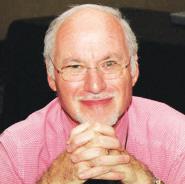
and Dr. Robert Bloom biking in the Negev, Israel
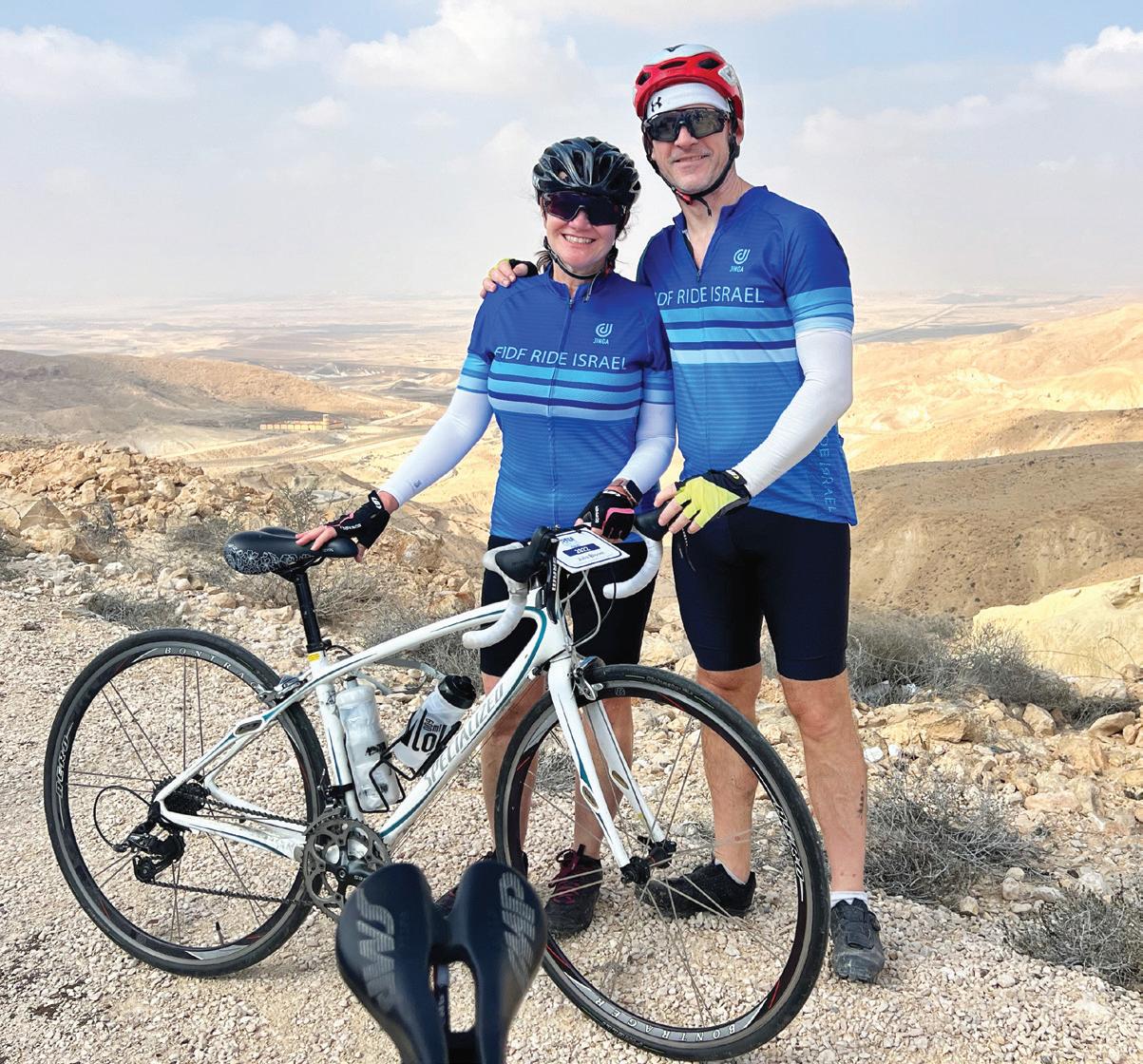
Julie and Dr. Robert Bloom participated in their third Friends of the Israel Defense Forces Annual Israel Bike Mission, an intensive six-day bicycle ride through Israel from Eilat to Jerusalem, Nov. 11 to 17. Along the way, they cycled near the Egyptian border on a private military road and visited an army base there. They rode through the Negev Desert to the Dead Sea and ended in Jerusalem where they visited a border police/ soldier training post. Joining FIDF supporters for the ride was a group of wounded Israeli combat veterans who have benefited from rehabilitative programs and prosthetic devices sponsored by FIDF. Julie is also president of Dayton Hadassah.
Wine Enthusiast magazine has named The Barrel House, owned by Sara and Gus Stathes, to its Best Beer Shops in the U.S. According to Pros list. No other beer shop in Ohio made this year's list. "We're honored, humbled, and downright geeked," Sara posted, announcing the honor. "We're gonna ride this high for awhile."
Joe D. Saks has joined Bieser, Greer & Landis as a senior associate attorney. Most recently he was a staff attorney with Montgomery County Common Pleas Court. Joe has joined the law firm's active litigation practice, with a concentration in medical malpractice defense.
Send your Mazel Tov announcements to mweiss@jfgd.net.
Thirteenth-Century Jewish Dates & Chaucer’s Prioress’s Tale
Jan.
Servants of time are slaves of slaves, The servant of God alone is free, Therefore, when each man makes his choice, My soul says, 'I choose God for me.'
This short poem, written by Yehuda HaLevi near a millennium ago, is about the nature of freedom.
Freedom is central to the message of the Torah and the People of the Torah. Follow along the Torah readings this month as we read the story of the Exodus or consider what we are enjoined to remember every time we say Kiddush, "zecher yetziat Mitzrayim," calling to mind the Exodus from Egypt.
Freedom’s fundamental message is, as Jefferson put it, that “the mass of mankind has not been born with saddles on their backs, nor a favored few booted and spurred, ready to ride them legitimately, by the grace of God.”
A powerful phrase, but not so powerful as to inspire Jefferson to stop breeding and selling slaves himself to keep Monticello afloat. More than powerful prose is needed to achieve true freedom.
Somehow, freedom and its opposite remained stuck together. We ponder that in America and are rightly troubled by it.
In HaLevi’s poem, we see that servitude and freedom are conjoined. The poem takes for
granted that we will all serve something. The poet keeps it simple – the choice, in the end, is between time and God.
By time, HaLevi means the world subject to the endless passing of time, which wears inevitably down our highest ideals and finally our very selves. It is the great machine that slowly wears all down, the unstoppable increase of entropy, ending only when all is reduced to an equal grey emptiness.
Devotion to that world is nothing but slavery. What might gain a temporary high, but even at its highest moments, is fraught with the fearful knowledge that it will all come undone. Haval havalim – all is insubstantial and vain, passing like a breath, and then our breath stops.
HaLevi knew that world well. He was born to such privilege as his time afforded, a time he celebrates in his youthful poetry, filled with praises of wine and of friendship, of celebration and of love.
You can trace in his poetry the awakening of a deeper consciousness, as he begins to find the freedom that eluded him in his earlier pursuits of success and happiness as the temporal world, the world of time, defined it. His passion remains, but it seeks a beloved ever more clearly understood, the
Omega Baptist Church and Temple Israel will host their annual MLK Weekend pulpit exchange Jan. 13 and 15.
The Rev. Joshua D. Ward will deliver the sermon at Temple Israel's Shabbat service at 6:30 p.m., Friday, Jan. 13. Temple Israel is located at 130 Riverside Dr., Dayton. Rabbi Karen Bodney-Halasz will deliver the sermon at Omega Baptist Church at the 11 a.m. worship service on Sunday, Jan. 15. Omega Baptist Church is located at 1821 Emerson Ave., Dayton. The community is invited to both services.
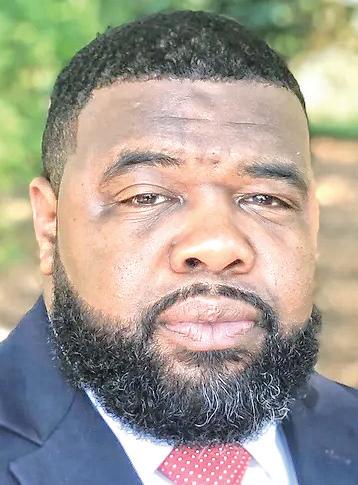
source of love and of joy, and of meaning deep enough to leap over time’s abyss. He becomes aware of God’s passionate desire for us and he is filled with a passionate response of his own burning love.
Here he finds genuine choice. The world does indeed hem us in, and we are bound by its laws and rules, about which we have no choice. So the choice we do have is not whether to serve or not, but what or whom do we serve.
In the world of time, we will be slaves to fashion, servants to the latest fads of thinking, of taste, of association. In obedience to the dictates of these masters, we will find our morals and principles frightfully unable to help us. Following this path, we no longer have even the ability to talk to people who have identified with a different trend, as we identify ourselves more with emblematic affirmations of the trend we have elected as our master than with anything else.
Or one can choose to serve God. Only such a person is free.
But how can that be so?
The poet does not explain that here; he merely affirms it and lets the power of his poetry verify the message. But one might venture some explanation that is harmonious with the feeling he writes here so
powerfully.
The inevitable running down of our entropic, timebound world is only inevitable if it is viewed as a closed system.
But HaLevi tells us it is not a zero-sum game, not a closed system. The ground of its existence is energizing it continuously, investing it with love and concern and purpose.
True, we are bound to respond to that, to recognize our debt to our energizing source, so that we may live life in truth. But that is a bond of love, not of slavery.
Even as we freely choose to serve those whom we love, so too do we learn to realize we have the freedom to freely choose to love that which empowers us to love and who brings the beloved into being.
That is a choice. And making that choice brings freedom into the world. Living that choice teaches by example that there is nothing in the world that has any final call of allegiance on us except God. And it also teaches that in God’s service, we become free to serve in love all those whom our Beloved loves, and so embrace the freeing of all the world.
In the darkness of January, and in a time when it may seem that the cause of freedom is hopelessly beset by misunderstanding, misprision, and even betrayal, HaLevi’s faith calls us to awake to the true freedom that is already within our grasp, that we should take hold of it and give it our all.
Think of this as we follow the Exodus story unfolding each week. Answer the Torah’s call to express true freedom in action, and become a true servant to the cause of freedom that is God’s own, and can be served in every person whom we meet, as all humanity is created in God’s image.
Rabbi Aubrey L. Glazer
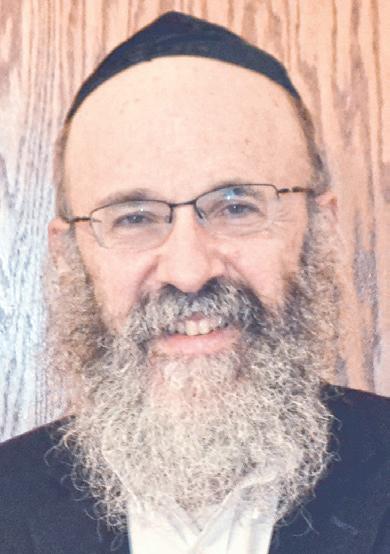
Cantor/Dir. of Ed. & Programming
Andrea Raizen
Fridays, 5 p.m. Saturdays, 9:30 a.m. 305 Sugar Camp Circle, Oakwood. 937-293-9520. bethabrahamdayton.org
Rabbi Leibel Agar Saturdays, 9:30 a.m. Evening minyans upon request. 7020 N. Main St., Dayton. 937-274-2149. bethjacobcong.org
Sat., Jan. 7, 10 a.m.
w. Rabbinic Intern Anna Burke 320 Caldwell St., Piqua. Contact Steve Shuchat, 937-7262116, ansheemeth@gmail.com. ansheemeth.org
Temple Beth Or Reform
Fridays, 6:30 p.m.
Rabbi Judy Chessin Asst. Rabbi/Educator Ben Azriel 5275 Marshall Rd., Wash. Twp. 937-435-3400. templebethor.com
Rabbi Haviva Horvitz 610 Gladys Dr., Middletown. 513-422-8313. templebethsholom.net
Senior Rabbi Karen BodneyHalasz. Rabbi/Educator Tina Sobo Fri., Jan. 6, 6 p.m. Fridays, Jan. 13, 20, 27, 6:30 p.m. Sat., Jan. 21, 10:30 a.m. 130 Riverside Dr., Dayton. 937-496-0050. tidayton.org
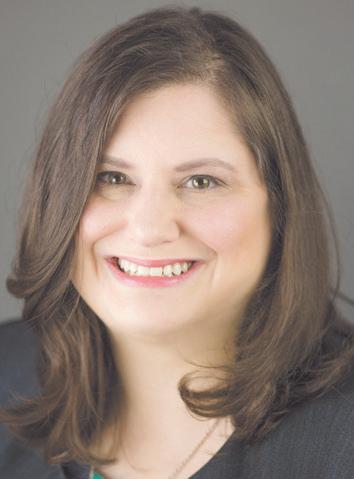
Rabbi Cary Kozberg 2424 N. Limestone St., Springfield. 937-399-1231. templesholomoh.com


January 6: 5:09 p.m.
January 13: 5:16 p.m.
January 20: 5:24 p.m.
January 27: 5:32 p.m.
January 7: Vayechi (Gen. 47:28-50:26)
January 14: Shemot (Ex. 1:1-6:1)
January 21: Vaera (Ex. 6:2-9:35)
January 28: Bo (Ex. 10:1-13:16)
Associate Rabbi Shmuel Klatzkin Youth & Prog. Dir. Rabbi Levi Simon. Beginner educational service Saturdays, 9:30 a.m. 2001 Far Hills Ave. 937-643-0770. chabaddayton.com
Antioch College Rockford Chapel. Contact Len Kramer, 937-5724840 or len2654@gmail.com.
The choice we do have is not whether to serve or not, but what or whom do we serve.The Rev. Joshua D. Ward Rabbi Karen BodneyHalasz
Yakov joined a local Minchah (afternoon) service and sat a few rows behind a father and his four kids. The man in front of them drummed his fingers on the bench. The kids fidgeted. The father whispered sharply.
ments about others based on their behavior. This airline’s check-in personnel are efficient. That driver's weaving on the road is dangerous. Those business investors are far-sighted.
writes.
However, judging others involves moral and ethical concerns, so it’s no surprise that biblical texts and rabbinic writings spell out clear guidelines embraced by two overarching principles.
function, we judge automatically. But to understand others, we judge by choice. How do these stories illustrate the principles of pursuing justice and weighing favorably — or not?
Candace R. Kwiatek
Behind them, the prayerful rocking of another attendee invaded the family’s space. The kids fretted. The father snapped crossly.
“What a jerk,” Yakov thought. “Your discontent is disturbing everyone. Do you have to scold your kids? If they get on your nerves, why not leave them home?”
At the conclusion of the service, the four kids—ages 12, 9, 8, and 6—stood and recited the Mourner’s Kaddish. Yakov sat, his face hot with shame.
The Mourner’s Kaddish is recited by children of any age when they have lost a parent during the previous 11 months.
Every day, we make judg-
According to psychologist Elizabeth Hall, "Our brains are wired to judge automatically, allowing us to move through the world without spending too much time or energy on understanding everything we see.”
On the other hand, to make sense of why people behave the way they do, we engage in a more deliberate judgmental process, attributing behavior to either personality or situation.
Slow cashier? It’s because of incompetence (personality) or being new at the job (situation). An acquaintance overlooks you? It’s because she’s thoughtless (personality) or he’s preoccupied (situation).
Behavioral science also observes that we favor excusable situational explanations for those we care about, but we tend toward hostile personality conclusions for those we don’t know well.
“Jewish tradition accepts that judging is built into human nature," educator Hanan Harchol
“In justice shall you judge your fellow man,” the Bible commands: don’t show favoritism or hatred, don’t take vengeance or bear a grudge, and love your neighbor as yourself.
Understood as obligatory in both legal and everyday circumstances, this command requires that we judge others realistically, logically, accurately, and fairly.
The great Talmudic sage Hillel adds, “Do not judge your fellow until you have (put yourself in) his place,” meaning that a person’s situation must also be taken into account when evaluating their behavior.
“Judge the whole of a person with the scale weighted in his favor,“ Joshua ben Perachia teaches in Pirkei Avot. That is, when judging, look not only at another’s behavior in the moment, but at the whole person, and begin with their virtues.
Interpret every situation in a way that yields the most favorable assessment of the person being judged. Give the benefit of the doubt.
We have been granted the beneficial and dangerous capacity for judgment. In order to
The senator. In 1963, Daniel Inouye was sworn in as a U.S. senator for Hawaii, the first Japanese-American to serve in the upper chamber of Congress.
According to Rabbi Joseph Telushkin, a few days after featuring a photograph of the new senators taking the oath of office, “a newspaper received a caustic letter complaining that ‘the senator from Hawaii doesn’t know his right hand from his left.’”
The writer’s conclusion was unjust. An infantry officer during World War II and the recipient of several military decorations for acts of valor, Inouye lost his right arm to a grenade wound.
The survivor. A Jerusalem wedding was surprisingly luxurious in the eyes of guests who knew the groom’s family. After all, they were far from wealthy and frequently requested financial help from the community.
Returning to the wedding hotel for the Sheva Brachot celebration, many guests began to gossip against this family who incurred such exorbitant expenses for their son’s wedding while living on others’ charity.
Overhearing the rumors, the rabbi shared the following story: Having no clue about the process or expense of renting event venues, catering meals, or
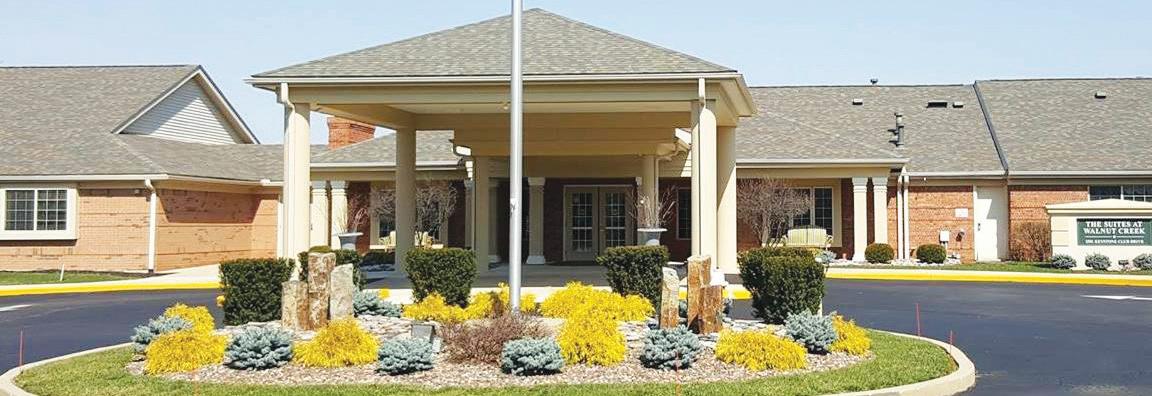
arranging wedding details, the groom’s father had simply entered the first hotel that caught his eye. Inquiring about prices he paused to introduce himself, at which point the hotel event planner burst into tears.
She explained, “Your father helped my family escape from Germany during the Second World War. It is the reason we are here today. I insist that your son’s wedding is celebrated in this hotel on my tab.”
The sofer. The new, young rabbi of an established, elderly Johannesburg shul, Rabbi Mendel Lipskar was leading his first Yom Kippur service when a young man walked in.
Wearing jeans and sandals and sporting long, frizzy hair, he looked very out of place.
Nonetheless, Rabbi Lipskar asked the gabbai (congregational functionary) to give their visitor the honor of opening the ark. The gabbai was horrified. Such an honor to this hippie? Unthinkable. But the rabbi insisted. The gabbai acquiesced, and the young man was honored. Inspired, he went on to become a well-respected American sofer (ritual scribe).
The sages of the Talmud taught: “One who judges another favorably is himself judged favorably.”
The opposite is also true. Criticism or compassion? Faultfinding or fairness? How we judge others is ultimately how we will be judged, measure for measure. By others around us. And by God.
Angel of Alta Langa by Suzanne Hoffman. Inspired by real-life events, this historical novel follows the epic stories of several families in Italy’s wine-growing region during the era of fascism and the Nazi occupation. It’s a complex tale of love and war filled with suspense and tragedy, resistance and despair, courage and friendship, richly embellished by the history and culture of Italy’s Piemonte region. Enjoy this novel during the long cold winter.
Rosalind Looked Closer: An Unsung Hero of Molecular Science by Lisa Gerin. A Jewish girl growing up in World War II England, Rosalind had a passion for science. Despite little encouragement and few female role models in scientific fields, she entered Cambridge to study chemistry and then molecular science. She was the first to capture an image of the DNA double helix, one of the most import findings of the 20th century, and then went on to research the molecular shape of viruses. A fascinating and inspiring book for primary grades.
Contact Patty Caruso at plhc69@gmail.com to advertise in The Observer.

The sages of the Talmud taught: 'One who judges another favorably is himself judged favorably.'
For the coating:
1½ cups all-purpose flour

3 eggs + the leftover egg white from the stuffing
1 Tbsp. tomato paste ½ tsp. salt oil for frying
For the sauce:
2 large onions, sliced into rings (super thin – on a mandolin, if available)

2 medium tomatoes, grated 4 Tbsp. tomato paste
2 cups water
1 tsp. sweet paprika 1 tsp. salt 1 tsp. sugar pinch of ground nutmeg ⅓ cup oil for frying
Peel your potatoes. Slice each potato lengthwise into four slices. Then take each slice and make a cut lengthwise almost all the way through so you create a pocket.
Dip each potato pocket in flour, making sure each piece is fully coated, but tap off any excess flour. Then dip in the egg mixture and fry in batches until golden on all sides. Repeat with all the pockets and lay them on a plate or tray.
Heat the oven to 325 degrees. Make the sauce in an ovenproof, large, deep skillet. Add the oil and fry the onions slowly until softened. Add the tomato paste and mix. Add the salt and the rest of the spices and mix again. Then add the fresh grated tomato, sugar, and water.
When the sauce comes to a simmer, slowly place all the potato pockets into the skillet, laying them side by side. Cover, turn the heat to low, and cook for 10 minutes.
By Shimi Aaron, The NosherMafrum is a Jewish Libyan dish of potato stuffed with spiced ground beef, then simmered in a tomato sauce. It is traditionally eaten on Shabbat and Jewish holidays.

The Libyan kitchen is a mix of Arabic and Mediterranean food, with a strong Italian influence. But since the early 1950s, when the vast majority of Libyan Jews immigrated to Israel, mafrum has evolved. It quickly became very popular in Israel, where it has been interpreted by Jews from different countries, such as Tunisia, Morocco and even Egypt.

I grew up on this dish. My late grandmother used to make it for holidays and it’s one of my family’s favorite dishes for
Shabbat. My mom serves it over couscous with a side of tahini sauce and a finely chopped vegetable salad.
My interpretation of mafrum is a little bit different, mostly because in the original recipe you only use tomato paste for the sauce. I love fresh tomatoes, which is why I use them as a base for my sauce. They make the sauce a bit richer, and put a new spin on it.
Sometimes, to make the dish a little lighter, I replace the traditional potato with eggplant, which is my favorite vegetable. But it is the potato version that I want to cook and eat on cold winter nights. I serve it the same way my mom does: the tahini sauce is perfect, the salad brings freshness, and if you
squeeze fresh lemon on top of it all, you’re basically in heaven.
4 white medium-size potatoes water salt
For the stuffing: 3/4 lb. ground beef (80 percent lean, but not more) 1 bunch of parsley, washed and chopped 1 medium onion, grated 2 garlic cloves, grated 1 egg yolk (save the white –see below) salt and pepper ½ tsp. ground cinnamon ½ tsp. ground nutmeg ½ tsp. ground cumin 1 Tbsp. breadcrumbs
1 Tbsp. extra virgin olive oil
Fill a bowl with room-temperature water, add a pinch of salt, and place the potato slices inside for about 45 minutes, while you continue with the recipe.
By hand, mix all the stuffing ingredients in a bowl. Divide them equally into 16 meatballs and place on a tray.
Drain the potatoes and dry them completely. Sprinkle some flour inside each potato pocket. Take a meatball, smash it with the palm of your hand, and stuff the potato pockets with it. Make sure the meat doesn’t stick out too much.
In a separate bowl, mix the three eggs, the remaining egg white, salt, and tomato paste with a whisk.
Place all the flour for the coating on a large plate.
Using a large deep frying pan, heat 2 inches of oil on medium heat until it reaches 375 degrees.
Place the skillet in the oven for 60 to 90 minutes, or until the sauce has cooked down by half and potatoes are soft. Serve with chopped herbs, a fresh salad, and tahini dressing.


of a grand reversal of fortune and the shifting political winds that there is no room left for much else. In a way, this is the point, illustrated by a matriarch’s remark that it’s “like a second death, to lose your name in a family album,” but dramatically this is little consolation.
When I learned that this play was two hours long, I wondered if this would be a speed-through of things Stoppard would rather not discuss. One can’t avoid the fact that, in his masterpiece Arcadia, he spent well over two hours meditating on past and present via Georgian-era landscaping and, in Coast of Utopia, devoted over nine hours to pre-revolutionary Russian radicals. One would expect his own Jewish autobiography to warrant a bit more stage time. Though profiles have promoted the play as a final confrontation with a past Stoppard was ashamed not to have interrogated, is it in fact another dodge?
The first and strongest scene in Tom Stoppard’s Leopoldstadt is abuzz with activity — and ideas.

The play, now on Broadway at the Longacre Theatre, opens in 1899 in a wealthy, bourgeois apartment off the Ringstrasse in Vienna. There’s a Christmas tree bearing candles, soon to be claimed as interfaith by a Star of David topper. The adults are looking at books: Herzl’s Judenstaat, Freud’s Interpretation of Dreams, a racy, unpublished play by Arthur Schnitzler (La Ronde). The Catholic wife of the master of the house mentions that she’ll be sitting for a portrait for Gustav Klimt. There’s also a family photo album, a key prop that gets lost in the shuffle.
At some point, the many children — some baptized and with a Christian parent — scuttle off to see a nativity scene. In the lull, two brothers-in-law, the upwardly mobile and newly Christianized Hermann (David Krumholtz) and Ludwig (Brandon Uranowitz), a Jewish mathematician denied professorship by quotas, discuss the Jewish question.
Hermann, having come of age during the emancipation of Austria’s Jews, believes assimilation will win out in the new century.
“We worship culture!” Hermann insists, listing the luminaries of the empire from Haydn to Brahms, and dismissing the bygone pogroms and expulsions that will, in the course of two hours and four generations, return to afflict the family.
Ludwig is less sanguine. “A Jew can be a great composer. He can be the toast of the town. But he can’t not be a Jew,” he says. “In the end if it doesn’t catch up on him, it will catch up on his children.”
This ineradicable Jewishness seems to have finally caught up with Stoppard, who, almost from short pants to middle-age, lived a life largely unaffected by his Jewish background.
Of course there is a paradox: This most Anglophilic of writers only wound up in England by dint of his Jewishness. He arrived there from India (by way of Singapore), having fled the Nazi invasion with his family when he was around 18 months old. Stoppard now may call himself an “English playwright of Jewish heritage,” but might I hazard another description?
Stoppard is a Jew of culture — not one raised with
Yiddishkeit, but a Jew obsessed with culture and history often to the detriment of feeling. Cerebral, Stoppardian detachment strikes again, but it is more disappointing given this play’s material and, in the end, its desire to confront familial alienation head on.
Leopoldstadt is in many ways grandly ambitious, following the prosperous Merz family of garment manufacturers and the humbler Jacobovicz clan, who have relations back in Galicia, from the end of the 19th century to Kristallnacht, with a small coda in the 1950s for Stoppard to self-flagellate over his earlier indifference to the past. But too often it insists on letting us know what exactly is happening on the world stage, caring less for what else is affecting the large cast of characters.
After a contrived subplot featuring a dragoon and an affair, we’re whisked away to the 1920s. We know it’s the 1920s because someone is doing the Charleston. But we also know because there’s a wounded veteran of the Great War, Hermann’s son, Jacob (Seth Numrich, doing too much), who we’re meeting for the first time. He declaims about the politics of the day alongside relatives who range from a socialist to a Marxist disposition. Offstage the family awaits a mohel. It’s too broad and farcical, and that may be because Stoppard, having no firsthand experience with a bris — at least as an adult — apparently deferred to Fran Lebowitz for insight.
Instead of developing relationships, Stoppard is intent on giving us a history lesson. (He is a sometimes spotty student, if I can nitpick. Would Hermann really first be discovering Judenstaat nearly four years after it was published and two years after the First Zionist Congress? How is a character just returning from the Evian Conference in July 1938, just in time for Kristallnacht that November?)
Director Patrick Marber, who also helmed the West End production, marshals a large cast to great, efficient effect. The penultimate scene, when the Nazis arrive, is chilling, but not for its particulars. Though we’ve been with the family for well over an hour, and seen the changes in some, we scarcely know who half of them are.
We may recall their views on Zionism or Jewish identity, but so much is packed in to make a point
In a sense it’s not, as it is not much of an autobiography at all. Everything, down to the decision to set the drama in Austria rather than Czechoslovakia, appears guided more by Stoppard’s veneration of cultural figures and historical factors. That and a concern for the dramatic. It’s not simply that he may prefer Freud or Klimt or Schnitzler (who he’s adapted) as a touchstone over Kafka, but that it is richer to debate the status of Jews in the land that produced Hitler.
If assimilation, as well as the refugee crisis and the emergence of fascism, are meant to align with contemporary concerns, they are too granular in their renderings to carry much resonance for me. And, though this is likely the reason for the intermissionless runtime, the developments are too rushed. Yes, it happened fast, but not that fast.
In the play’s final movement, things slow down and do go somewhat deep with Stoppard’s psyche. The cast is whittled down to three, the set stripped bare. We’re meant to feel the absence, but also the play’s reason for existing. Leo Chamberlain (formerly Leopold Rosenbaum, played by Arty Froushan), a self-satisfied young Brit with a bit of a literary career, turns up in Vienna to meet his surviving relatives. An undisguised self-insert, Leo has a case of foot-in-mouth disease, at one point telling his cousin who survived Auschwitz, “I’m sorry you had a rotten war.”
Leo, who escaped to Britain and led a charmed, lucky life, at last recalls a history he’d forgotten in a room where he once lived. And in a moment that may be drawn most fully from Stoppard’s own experience, a relative draws him a family tree, and tells him the fate of each branch.
Stoppard should be kinder to himself. Unlike Leo, he was too young to have forged a memory of his homeland and the people murdered miles from its borders. Should you know little of the playwright’s own history, Leo’s short time on the stage may feel out of place. It does, however, return to a central theme of assimilation and its limits.
In the opening scene, Ludwig lays it out for Hermann. “We worship culture,” he concedes. “But, Hermann, assimilation doesn’t mean to stop being a Jew.”
For much of his life and career, Stoppard seemed to test this axiom. Leopoldstadt announces Stoppard’s arrival as a writer on Jewish themes, but a worshipper of culture above all.
A scene from the Broadway production of Leopoldstadt.

In
, Tom
shows the difference between a JewJoan Marcus
Stoppard is a Jew of culture — not one raised with Yiddishkeit, but a Jew obsessed with culture and history often to the detriment of feeling.Joan Marcus
Continued from Page 17

We are our brother’s keeper, and any Jew suffering from antisemitism is ultimately our responsibility. We must come together, despite our differences, and fight those who hate our people.

How can Jews stand together against antisemitism while respecting our ideological divides?
First, this isn’t a moment to try to win each other over. This is a moment to declare that every Jew matters and is worth protecting. We may disagree on many things, but we can appreciate that difference doesn’t have to equal division. We cannot allow the toxic partisanship that has seeped into so much of our society to poison our communal spaces. There are no “tikun olam” Jews. There are no "Trump” Jews. There are only Jews, and we need to remember the dictum — you shall love your neighbor as yourself.
Second, we should recognize that self-defense starts with self-love and self-knowledge. Jewish literacy is essential to our long-term survival.
Many like to remark how Rabbi Abraham Joshua Heschel prayed with his feet — but he did so in part because he wrapped tefillin with his hands. This is not to say that we all need to observe our faith in the same manner.
There are plenty of Jewish people who opt out of ritual entirely, and yet their connection to our peoplehood is as strong and as valid as those who daven, or pray, every day.
But shared values that emanate from Torah still bind us as a people — we need to redouble, not just our efforts to pass on these values to our children in ways that relate to the next generation, but we also must relearn these values ourselves.
Third, we must never allow our ideological blinders to gloss over or ignore antisemitism from those who are generally our political allies. We must be morally firm and call out antisemitism where we see it, and not just when it is convenient politically.
We must be equally fierce in the political circles where we belong, where we ultimately have more influence and clout, as in simply calling out hatred by pointing to those on the other side.
During his lifetime, Rabbi Menachem Mendel Schneerson shared his wisdom about the fact that while every Jewish person is a unique individual, as a people we share a “basic commonality that joins us into a single collective entity.”
The Lubavitcher Rebbe understood that this unity has sustained the Jewish people throughout history.
If we look to our ancestors, we can see examples of how holding together at times of strife has made our community stronger.
It’s quite possible that we may be living in one of those difficult periods again. I hope we can meet the moment.
Jonathan A. Greenblatt is CEO and national director of the ADL.Susan Nicole (Jacobs) Davis, age 50, of Dayton, passed away Dec. 13. Susan is survived by her beloved husband, Rich Davis; sons, Jake and Joey Davis; mother, Rachel Jacobs; brother and sister-in-law, Dr. Bradley Jacobs and Dr. Cassandra Milling Jacobs; sister and brother-in-law, Julie and Dr. Adam Waldman; and her dear nieces and nephews, Samantha, Lucie, and Ezra Jacobs, Noah, Zoe, and Oscar Waldman. She was preceded in death by her father, Steven Jacobs. Susan was a graduate of the University of Michigan and The Ohio State University – Moritz College of Law. She was an attorney for Sony Music and Warner Music Group in New York City for 12 years, where she met her husband, Rich. Interment was at Beth Jacob Cemetery.
Beverly Ann Kantor, age 83 of Englewood, passed away Dec. 12. Bev was preceded in death by her parents, Lois and Raymond Hamblin; sister, Sandra Kay Hamblin; brother, Norman Hamblin; and two nephews, Mark Hamblin and David Hamblin Jr.; and her mother-in-law and father-inlaw, Roberta and Gerald Kantor. Bev is survived by her husband, Jeffrey Kantor; daughters, Beth (Valente) Abroms and Rachel (Mark) Abroms; granddaughter, Sasha Miranda; grandson, Jacob Heyne; brothers, David (Joyce) Hamblin, Henry (Linda) Hamblin; nieces, Laura Petterway, Dana (James) Faello; nephews, Daniel Hamblin, Jack (Anna Marie) Meadow and Sydney Meadow; sister-in-law, Brenda (Scott) Meadow; many great nieces and nephews, and
many loving friends. Beverly was beautiful inside and out. An accomplished pianist who could play anything from a concerto to ragtime, she was Miss Louisville in the Ms. Kentucky beauty pageant. She loved watching Jeopardy and would blurt out the question while you were still processing the answer. She loved her many cats in her life: Odyssey, Cujo, Alex, Woody, and Sophie. She loved musicals. But what brought her the most joy in life was being a mother and grandmother. Interment was at Riverview Cemetery. Memorial contributions may be made to the Jewish Federation of Greater Dayton or Temple Israel.
Lynn & David Goldenberg
Debby & Bob Goldenberg
Rochelle & Michael Goldstein
John Gower
Carol Graff
Harold & Melissa Guadalupe
Dr. & Mrs. Stephen Harlan
Robert & Vicky Heuman
Ralph E. & Sylvia S. Heyman
Linda & Steve Horenstein
Rachel Jacobs
Michael Jaffe

Linda Jarvis
David & Susan Joffe
Dennis Kahn & Linda Ohlmann Kahn
Susan & Stanley Katz
Allan & Linda Katz
Don & Harriet Klass
Debbie & Norbert Klopsch
Cantor & Mrs. Jerome Kopmar
Edye Leuin
Laurie & Eddie Leventhal
Todd & Gabriele Leventhal
Norm & Kay Lewis
Ellie Lewis
Judy Lipton
Sis & Joseph Litvin
Beverly A. Louis
Brenda & Scott Meadow
Suzi & Jeff Mikutis
Kristen Mitchem
Irvin & Gayle Moscowitz
Richard & Marcia Moyer
Bobbie & Jack Myers
Dr. Ronald & Susan Nelson
Myrna Nelson
In honor of Natalie M. Davis, RN NICU
Neonatal, Cedar Sinai Hospital, L.A., grandaughter of Martin Nizny Phil Office
Cindy
Susan & Nathaniel Ritter
Helen Ross
Dr. & Mrs. Gerald Rubin
Sumner Saeks
Burton & Alice Saidel
Jeff & Cathy Startzman
Maggie Stein
Marc & Maureen Sternberg
Col. Jeffrey Thau, USAF, (Ret.) & Rina Thau
Bob & Suzanne Thum
Louis & Doris Ullman
The Waldman Family
Judith Weber
Donald & Caryl Weckstein
Peter & Joan Wells
Michael & Karen Weprin
Ronald Bernard & Judy Woll






























































